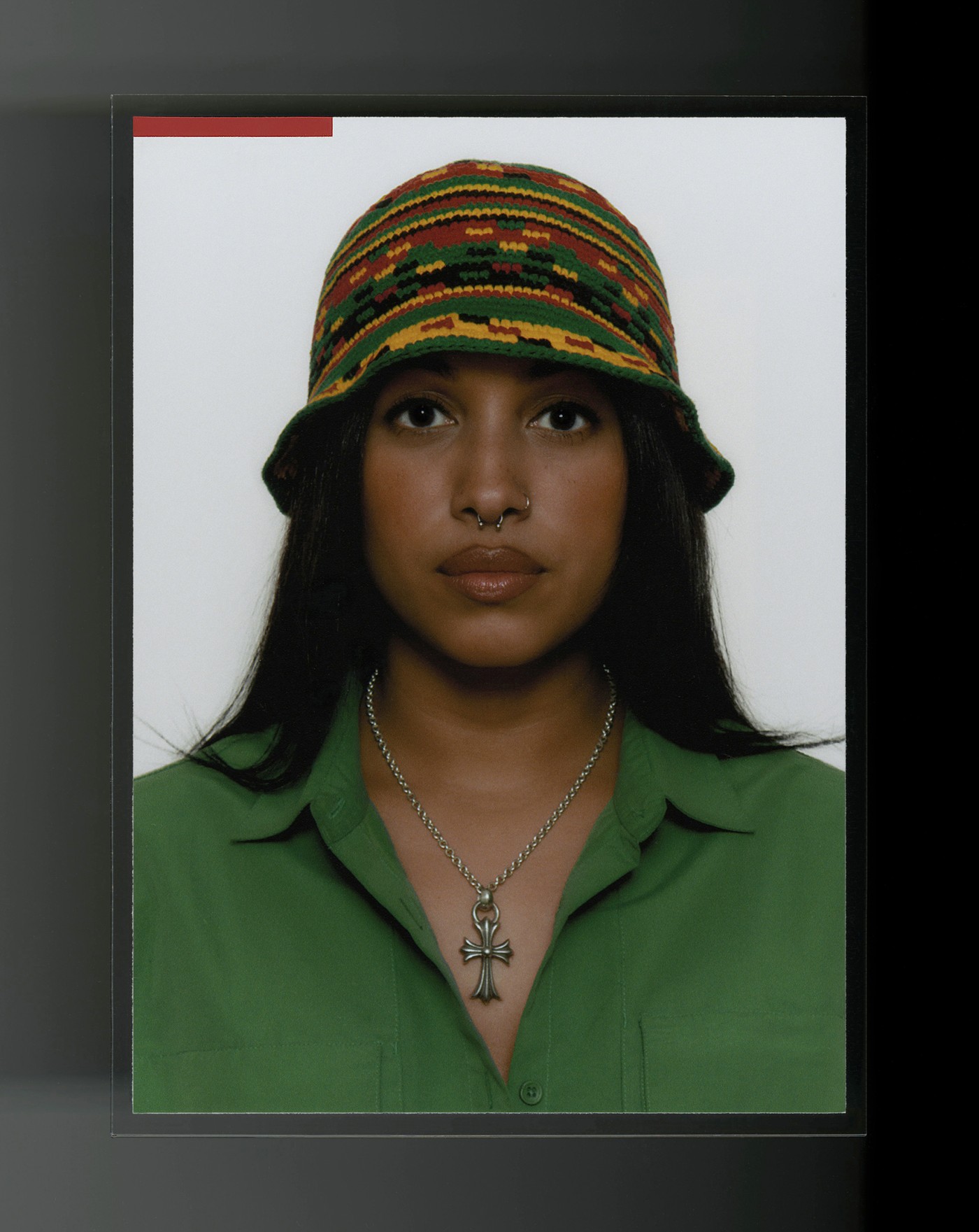7:00PM
Rewind to 2009. The , , , The , and The nuclear disaster. Many young Americans were broke, gridlocked by systemic oppression, and just plain mad. Amidst international turmoil and public distress, Venus X’s emerged as a sonic escape, an alternate reality, a fantastical antidote. Fast forward a decade, GHE20G0TH1K’s momentum transformed New York City culture and laid the groundwork from which today’s most prolific creatives arose.
NR
You’ve said literature bestows the greatest influence on your work. Can you describe the process of bridging ideas from literature into music?
VX
It fully bridged through deejaying, because I was able to synthesize everything I had read before and just reflect on it, versus having to try to write the best essay, thesis, or whatever. I kind of just stopped. I didn't even finish school, because I was deejaying and satisfying my need to tell these stories and to connect these dots. Obviously, I wish I had been a little more disciplined and finished, but I was in a very passionate trance with deejaying. GHE20G0TH1K was created through a blender of experiences and fantasies that I had picked up from books—social and political fantasies that that were quite literally other points in time or space. Then I was able to create a space through GHE20G0TH1K that was transgressive and reformed in certain ways and also felt like another world, through sound.
That was a lot easier to do in the immediate than to write a book or to dedicate the next 10 years to researching fucking ‘sublime uses of light in the art’. I understand now I can just create an experience through music that will help people understand the way that I'm understanding the world. That is very much informed by all these other people who are either visionaries in politics, literature, storytelling, or a combination of both, you know?
But I wanted to be part of that world. I wanted to create a musical experience as good as the first Octavia Butler01 book that I read and loved, or as good as Song of Solomon02.
I mean, it might take a lifetime, but at least I have a point of reference for where I want to fall in the end. How complex and how authentic do I need that story to be, you know? This is just the nature of becoming a DJ from being an intellectual or academic.
NR
It's performance—the most immediate effect.
VX
You have a lot of control. A lot of my early GHE20G0TH1K flyers were all about mind control.
Just reaching levels of but not necessarily needing to do it. It was more about figuring out how to have an emotional and physical transcendent experience at a club once a week. The people may not be that good at deejaying yet, but they have some really good ideas and are also very experimental.
I was really lucky to have other artists, designers, and DJ's around me too. All types of people like , , , , , , and were all experimenting too. I wasn't alone in my practice. A lot of us had gone to school or had met through crops of, like, kids who went to art school who do music, or kids who do music and hang with kids who go to art school.
It was like everybody, even and —he was making his original DJ sets and then he went to The New School. We used to run into each other at Murray's and House of Ladosha. It was a time when collectively we were all like, yeah, studying art is cool, trying to get into gallery shows is cool, but that's also boring. We just want to have an immediate effect on people.
We want to just be who the fuck we want to be.
NR
“Everyone was supposed to die, deejaying from 2009–2012 was like the apocalypse. We were all young, depressed, self-destructive, couldn't see an end to it, we were in debt from school or we had dreams that we couldn't afford to bring to life. You couldn't actually visualize your future, and what does that sound like? Pure fucking chaos.”
How did this state-of-being influence your consumption of print media? What images, theories, or stories were you drawn to during this time?
VX
Around that time, I was really obsessed with the news. The way I was consuming it was predominantly newspapers and news media in general. I'm not going to lie; that's all I really read and cared about. For the most part, I stopped reading around that time and started listening to a lot of music.
I had already read a ton—I'm not going to front. At that time, I read Blues and Black Feminism03 by which changed the way that I thought about music and what I thought was possible. I was entering a conversation that had already been happening for decades, of which I was now a part of a very different version.
Another book I remember the most was Judith Butler’s Undoing Gender04. I was thinking about the spaces I was creating at that time—lawless and self-destructive when it wasn't necessarily profitable. Now it's kind of profitable to be depressed or to be on , to talk about it, rap about it. And it's turned into a lifestyle. A brand.
Back then it was more like you were just alone and looking for these other weirdos like yourself online. And now all the cool people online.
And now the weirdos are kind of cool, but then they're just full of anxiety in social media the way the more well adapted more popular part of culture is.
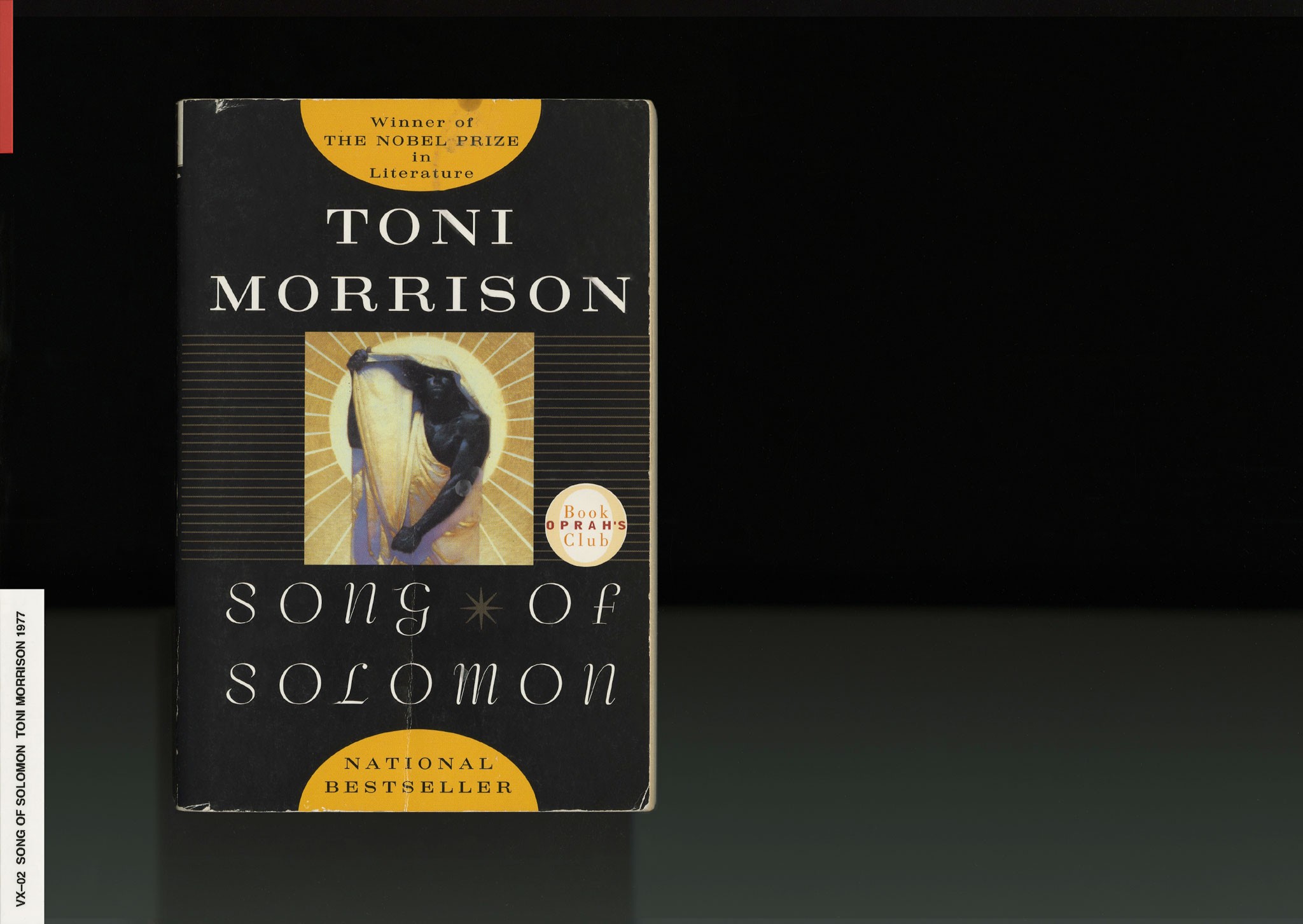
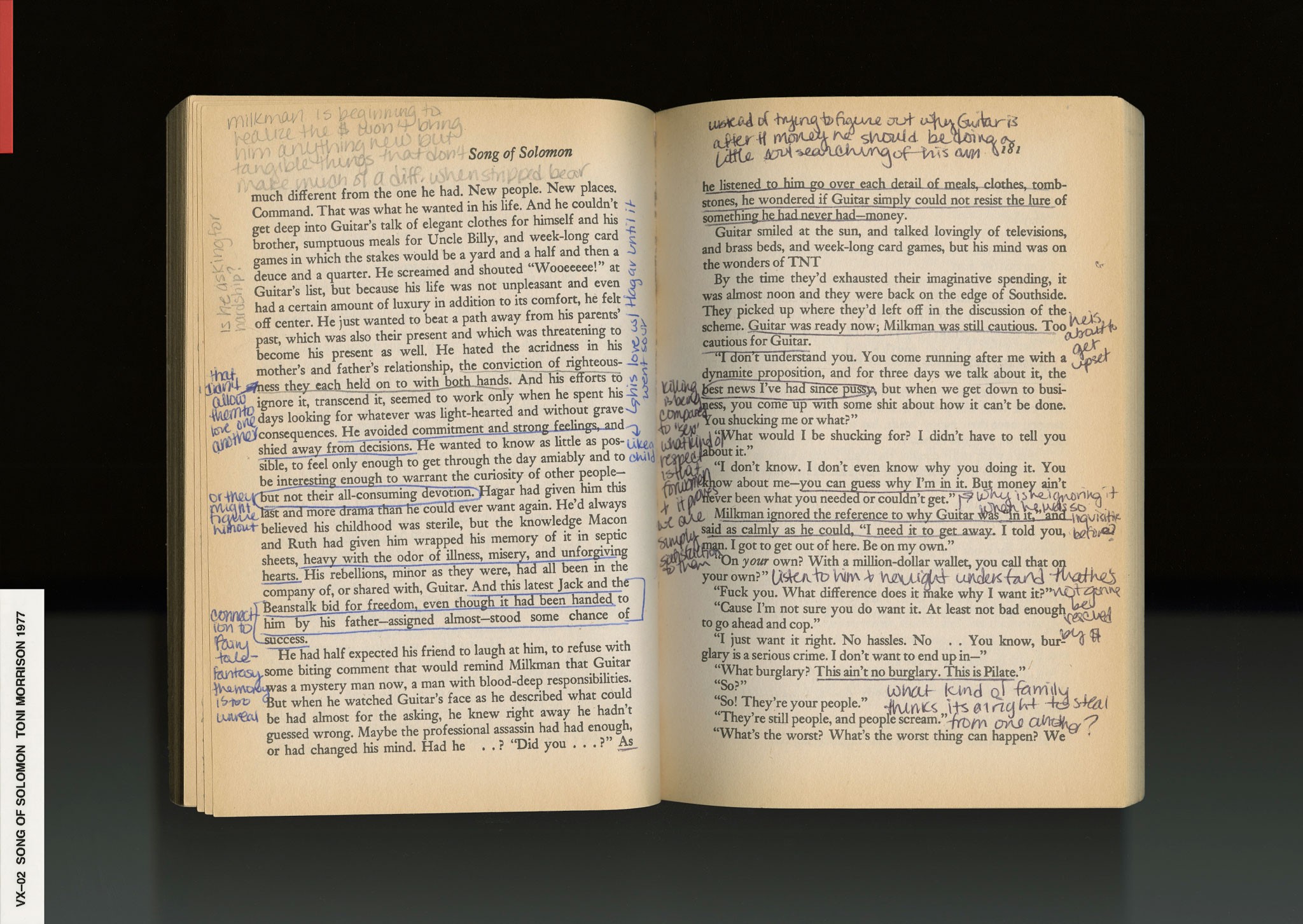
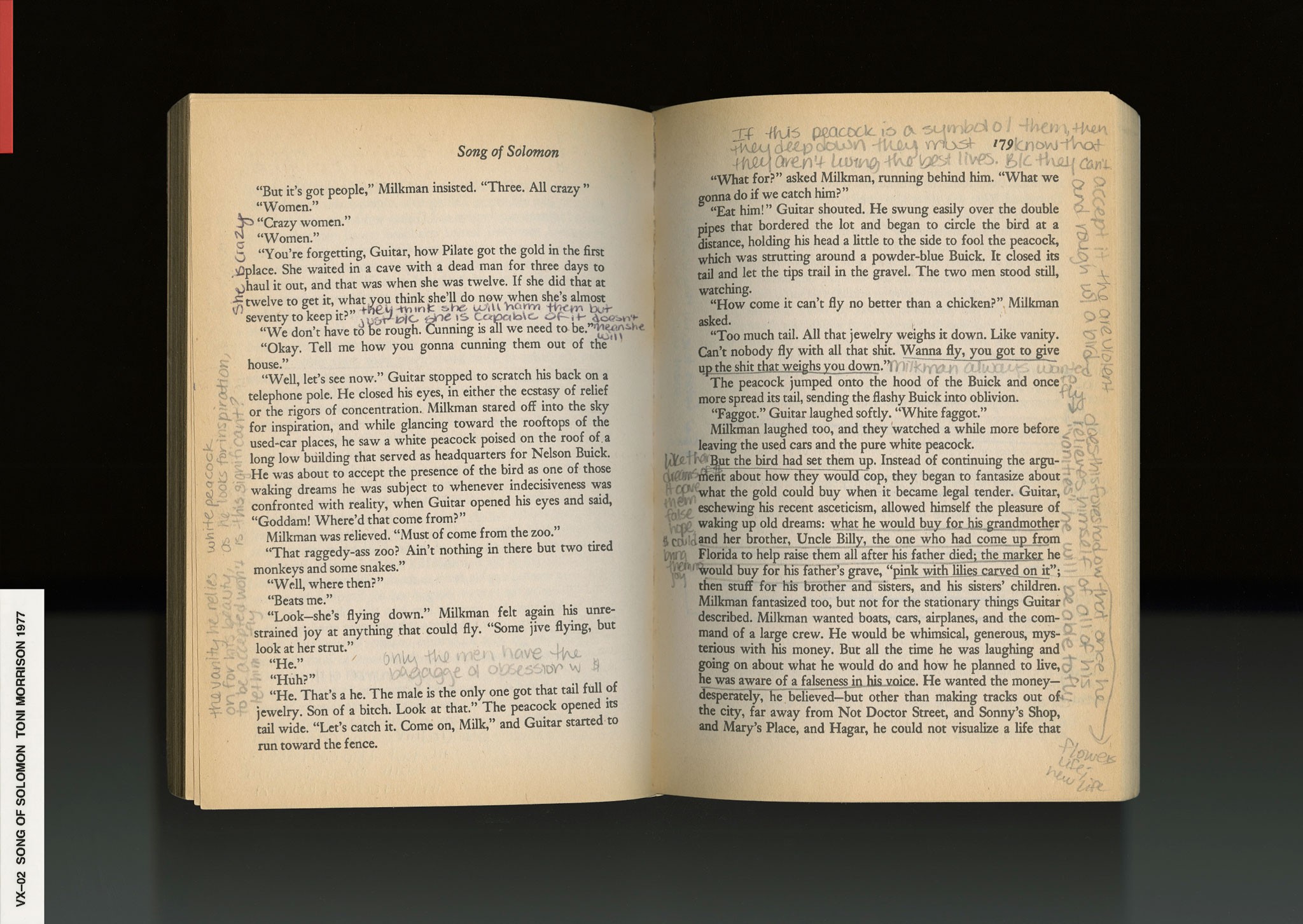
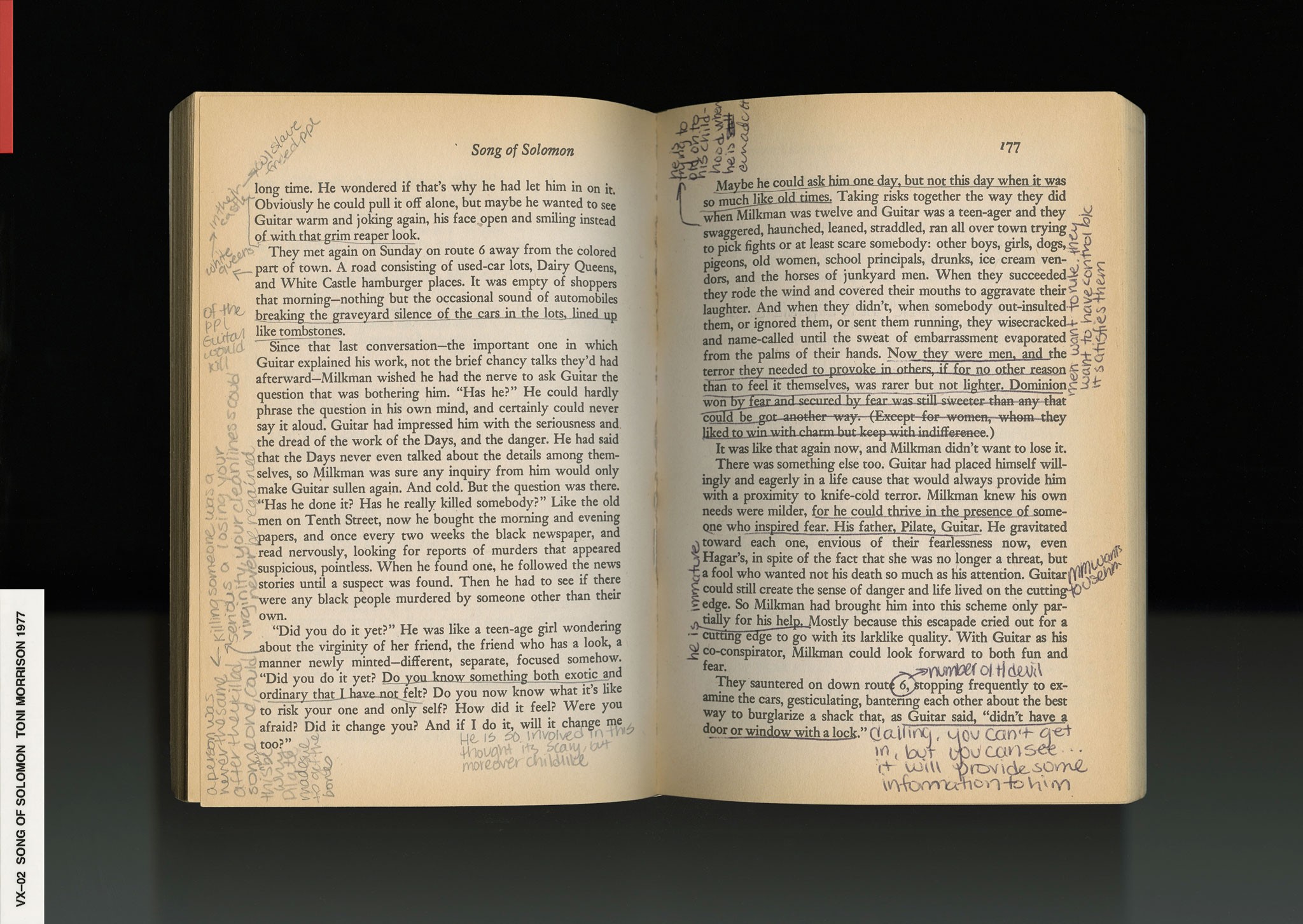
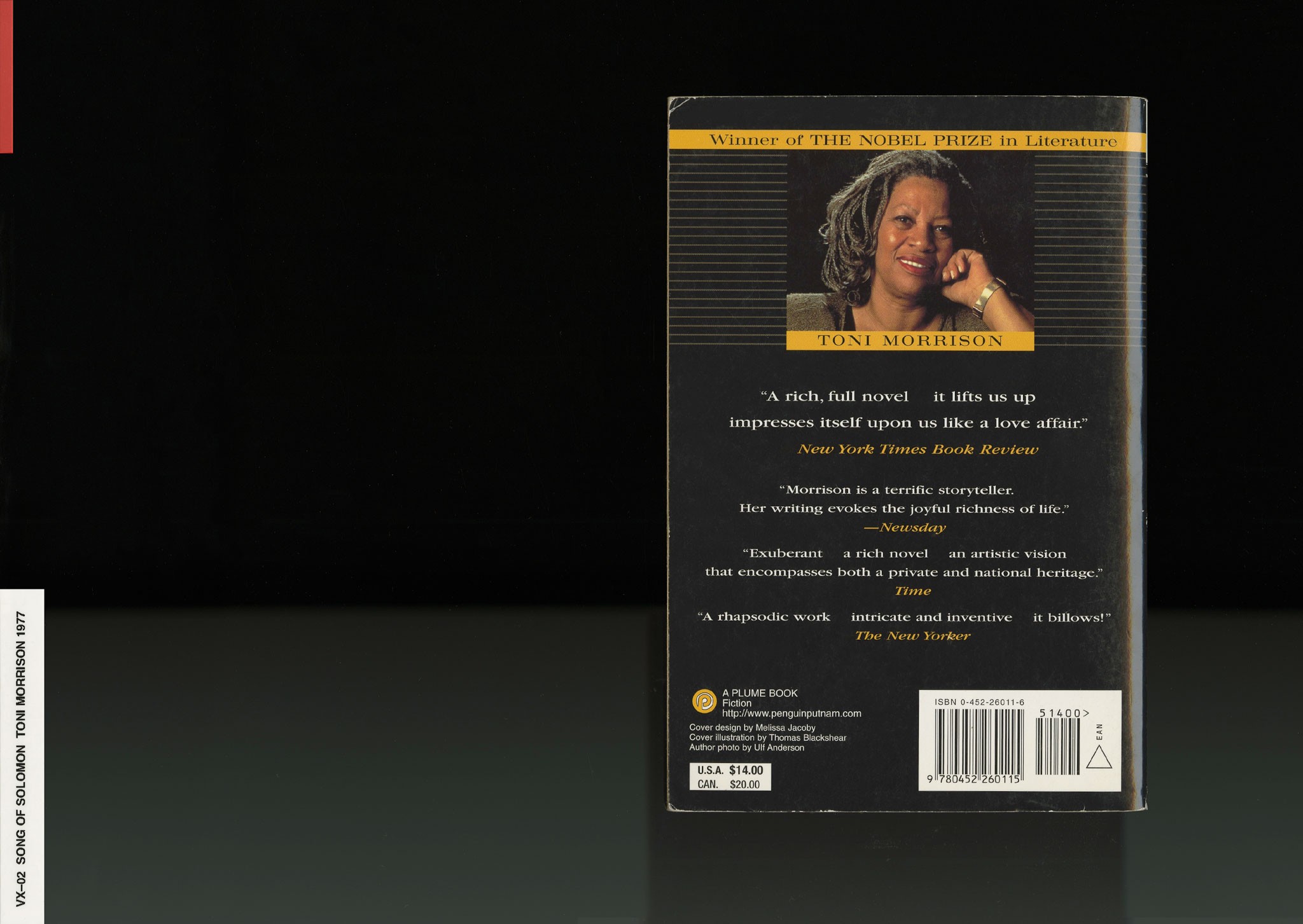
NR
Everyone’s trying to be weird now right? Subculture is mainstream.
VX
Yes. And it's weird. 2009 was a very different time. It was a state of self-destruction that you needed solace or remedy from. Now it's like, how can you package yourself as ‘destruction’ for mass consumption?
We're living in an era where promoting self-destructive behavior is profitable, whereas back then, we were just really unhappy and needed a place to go every weekend, and we weren't going to therapy. So we just used the club to deal. Now it's really different, because I don't know if there are any collective healing spaces. There's lots of great musical spaces, but they're not intentional, and they're not complex.
How it happened in 2009 to now is almost like a book. I don't know who's writing it, but it's a really good book.
We've been experiencing the upside of the economy for a long time now. It's about to go back down and I think now—because of GHE20G0TH1K in 2009—people have a language in music that can help them understand how to deal with recessions, depressions, and intense desires to self destruct. But in a more social musical collective way.
Part of what the crew in 2009 did was explore new ways of surviving. Not necessarily changing things completely, but creating spaces that were genuinely incubating the future: where people could be safe to grow—in a way that's more important to me than just having safe spaces, period. Not that that's our conversation, but having safe spaces to grow and being around people who are fully admitting their faults, issues, and gripes, versus trying to create these places that are utopic. It wasn't about utopia; it was about this dystopia. It was about, where do you get to exist within the dystopia that is about to arrive? And it's always about to arrive, just at that time, we just had these mythological, inherited, folkloric—whatever you want to call them—ideas about when the world was going to end. Now the world is actually ending because of what we've done—
Not because of like what was written in the , you feel me. So it's kind of an interesting time. It's so many levels of fucked up. So I say that to say, it should be an interesting time because people are not happy, and not only are they not happy, they're not reading and they're not really understanding the situation we live in right now. It's hyper-capitalism and hyper-surveillance-oriented, and both of those things are really hard on the psyche. You know what I mean?
I would say 2009 represents an era when there wasn't as much escapism into a phone. There was a phone, but it just did very simple things. And people still read books. And as the curator and creator or something that was really influential to a lot of people in New York—just from the sheer amount of people that came to parties—I think that having read a lot of books and being into books, even if I wasn't the most committed finisher, or I read them over the course of a year, really changed the way I thought about my whole life.
And I think that the process of reading a book teaches you a lot about patience and finishing what you start, and the idea of committing to understanding something fully. Which I think are some qualities that we lack in this fast culture, whether it's fast fashion or it's fast content consumption—or whatever it is—content creation, all of it.
That is not the natural order. And modernity is not going to completely erase the way things used to be. It's just going to simulate and compress, and then we're going to have more problems.
What it comes down to is, for me, books were the time when I forced myself to meditate. People can argue that reading is too engaged to be meditative. But I think that it's really depending on where you come from, and how much reading you've done, and what you're reading. I was so young, and I didn't have a vocabulary for a lot of the stuff that I was reading—no previous exposure whatsoever. I don't think I understood half of what I was reading. Just to put it simply, it was a meditation. I was looking at words and trying to put them together, and it wouldn't make sense for years. This level of meditation created this very intense radical perspective that went on to inform music, fashion, retail, social spaces, and whatever I touched.
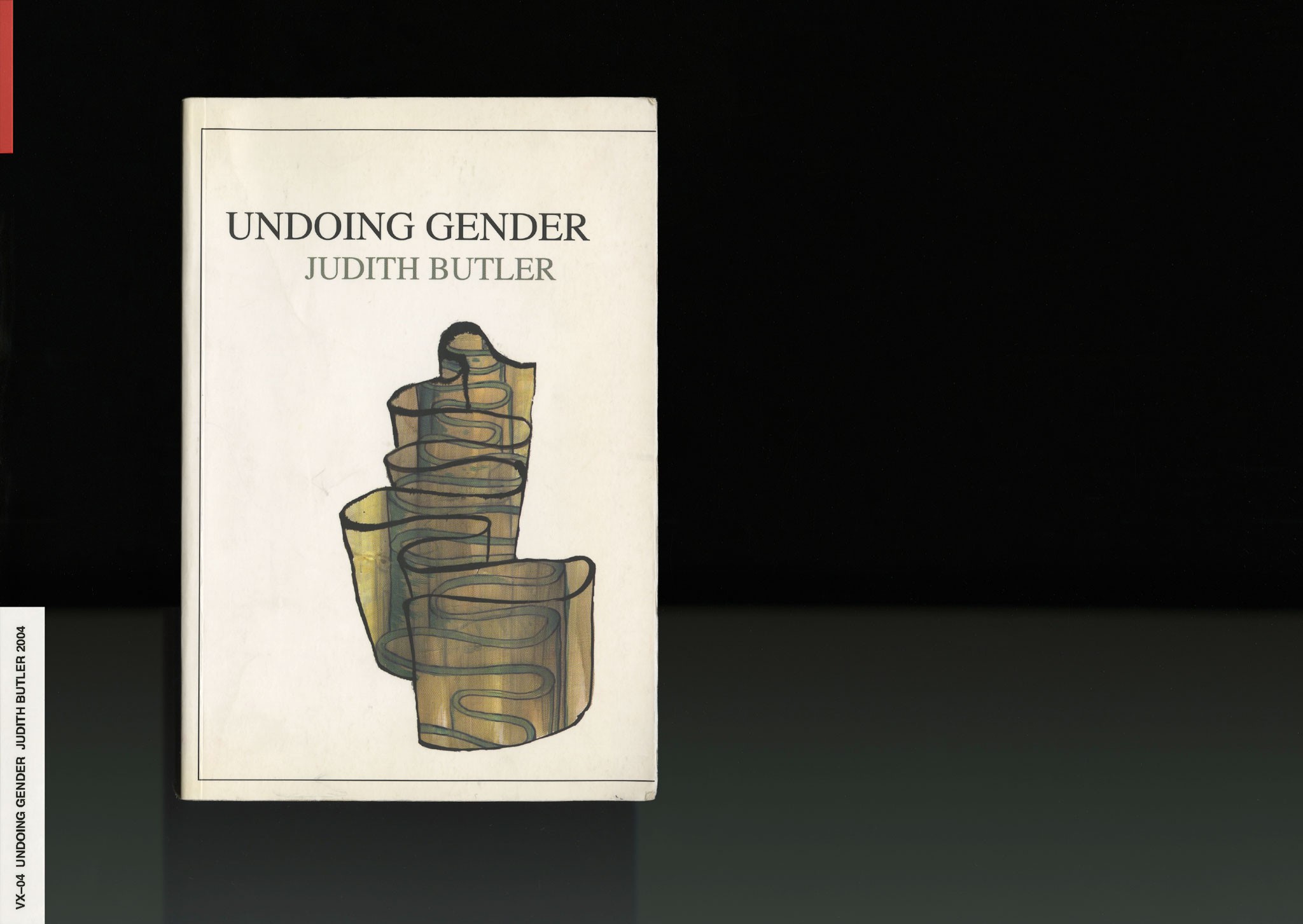
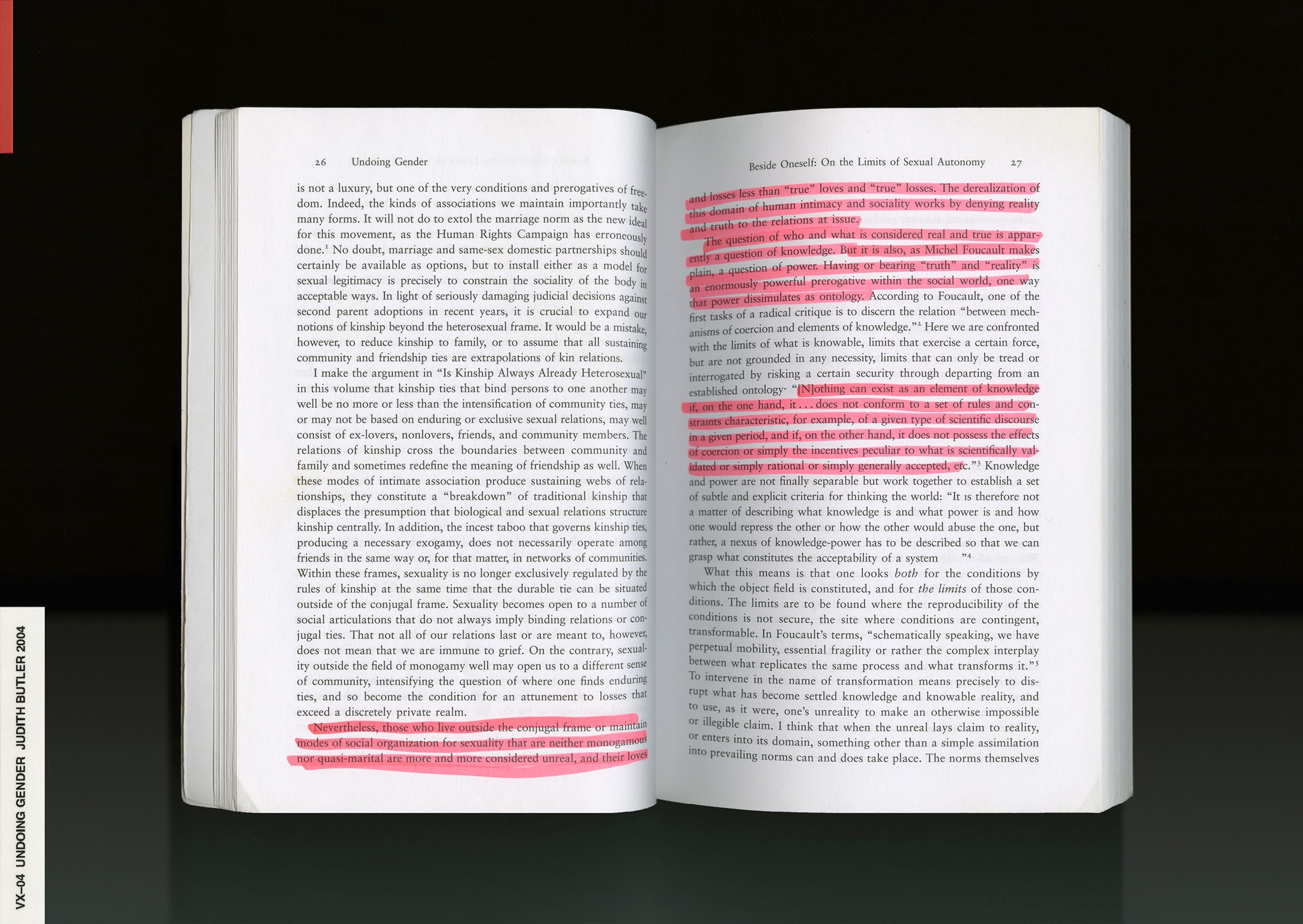
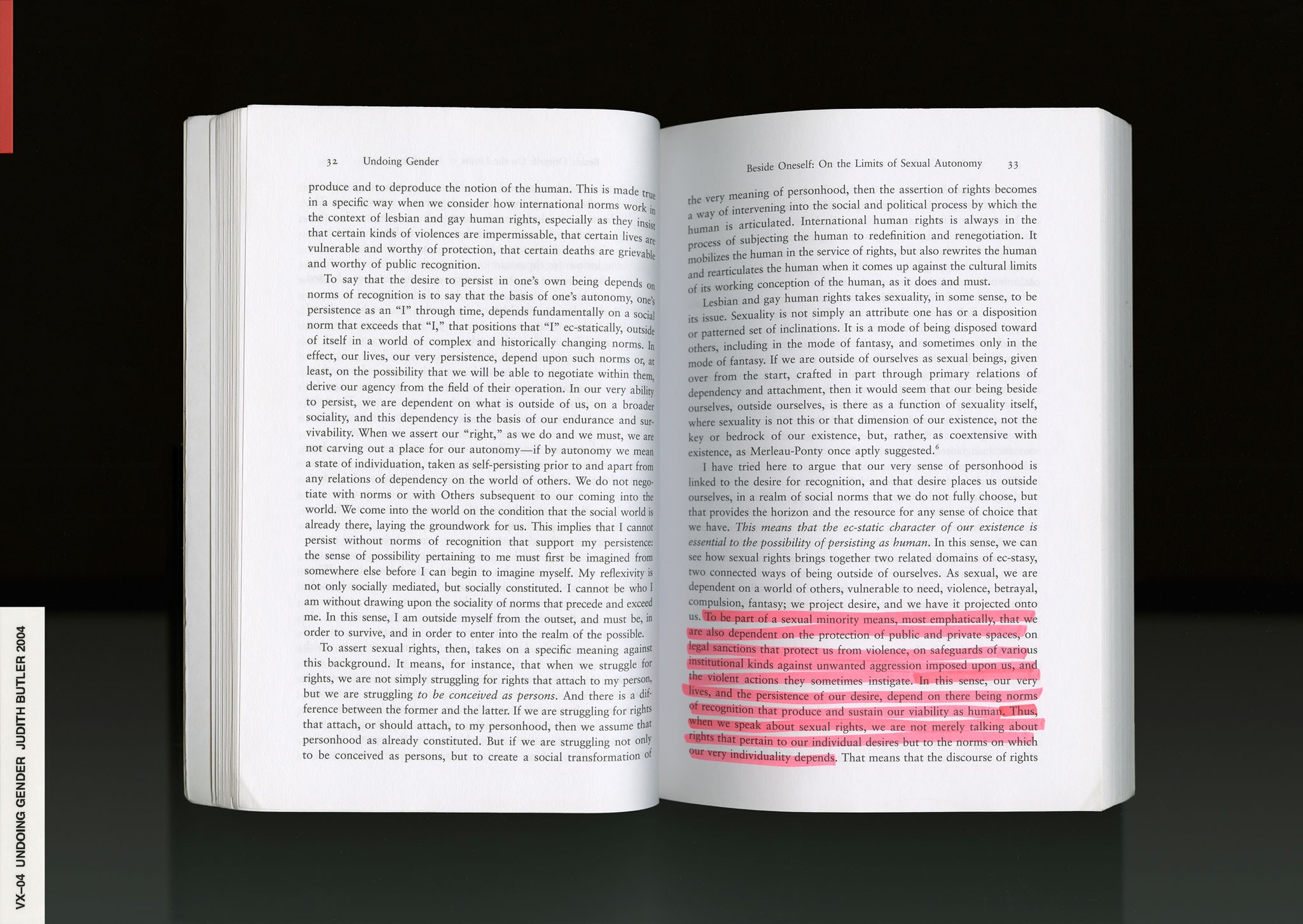
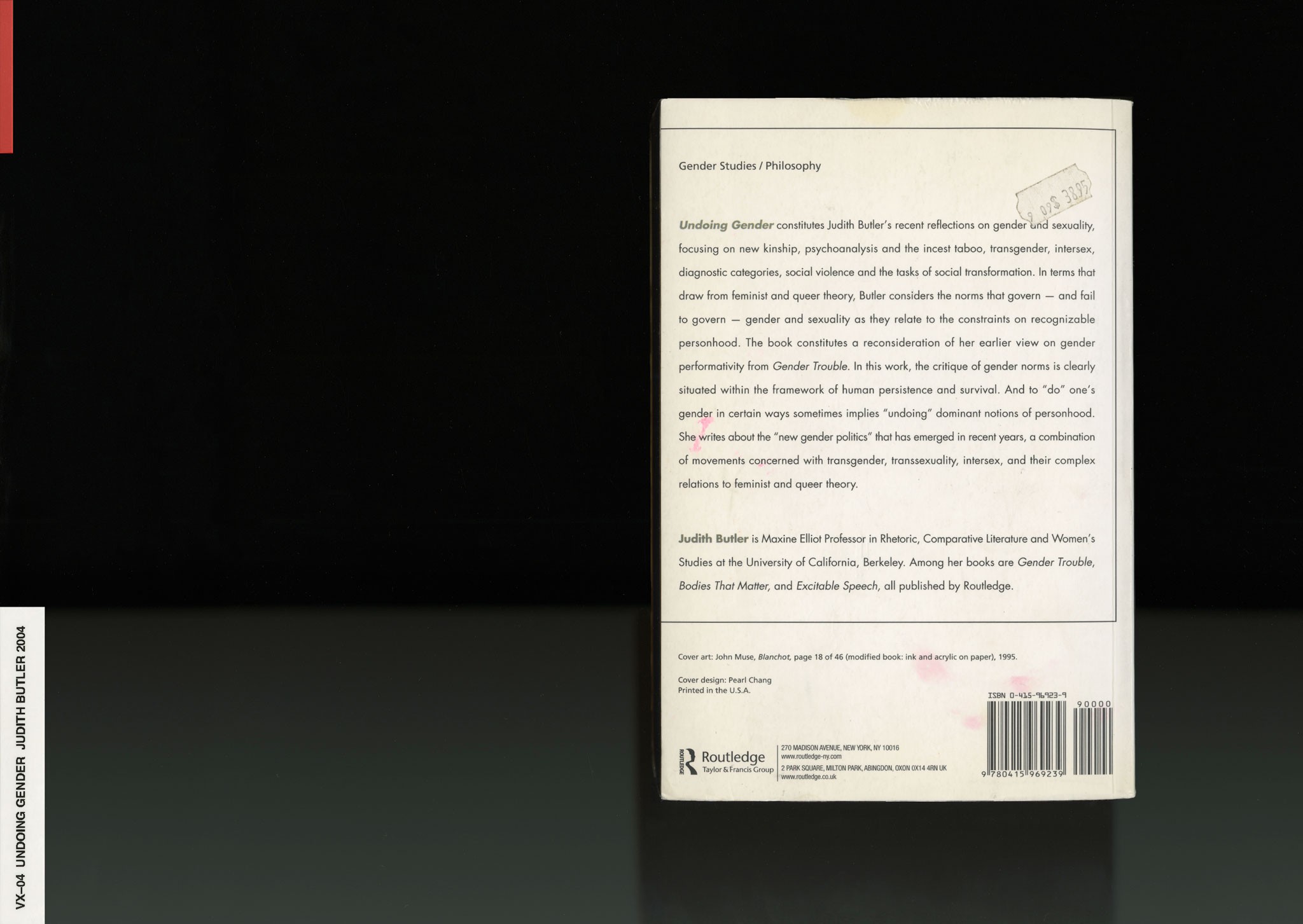
NR
You can see all of the ripples of that effect now.
VX
Exactly, it's almost too obvious at this point.
NR
To wrap that up, how did the 2009 state as a whole influence your print and book consumption?
VX
I think that the books and the music all led up to me becoming sort of a really good analyst of what was going on in the world. So, I became more obsessed with newspapers, because I finally had a context with which to understand what was happening in the world, and I could decode and move through the information with a little bit more clarity than reading a paper before. And so I felt like, as somebody who's laid a foundation for how I want to see the world and how I want to think about it, now I'm really going to become obsessed with having my own interpretation of it. In order to do that, I need to understand what's going on in the world. Because at a certain point, you read, and you read, and you'll never stop reading fiction. You'll never stop reading history. But you need to really understand what's happening in the present if you want to create something that's relevant.
And I say that because I had a party at that time that was so big in it’s impact. I was surrounded by so many geniuses, and I think that naturally we were not chasing the past or a fantasy. Fantasy was part of what we were doing, but we were creating fantasies, and we were rewriting fantasies, and creating sound fantasies, and moments that people could escape into. Whereas a lot of people are living in a book—literally in the past—or they're living in a fantasy.
We were creating the fantasy and living in the present. It was just really about the present and about being in the club. So that led to news really informing everything that I did. Even with our flyer designs, when the biohazard symbol became our logo; it was around the same time that the Fukushima plant exploded and also the BP Oil Spill happened. And so naturally we were like, well, there is biohazardous material everywhere.
NR
And were you mixing these news clips into your DJ sets—
VX
Absolutely, yeah. A lot of . It was the aesthetic for us, but also it was the meat and potatoes of what we were working with. Creating those moments in the club was not about nostalgia. We were using some older stuff, but the way we were fucking it up and remixing it aggressively and creating a cinematic narrative inside of the club was way more based on the atrocities and the drama of that time.
I remember deejaying a fashion after party playing some Nicki Minaj, and then I decided to drop into an Al Jazeera clip. This was during the Arab Spring and I was really like, does everyone know what the fuck is happening? I was literally playing news clips inside my sets and, at that time, I even had this Bukowski05 poem that one of my mentors had given me, called the Genius of the Crowd that I would play on my sets. And I just played it. Why? Because it was just had to be done.
It's less about shock value and more about the immediacy of current events and the way that they generate fear and misinformation. So playing something like Al Jazeera I think is still very revolutionary, because you don't know if the newspapers here are on the side of justice and revolution.
There's just a way of relating to information in which I think every generation has to take responsibility for what's happening, because you can become really obsessed with reading everyone else's version of the past or living in a fantasy world. You see it all the time with romance novels, self-help books, comic books, all these different literary vices. But none of them are resolving anything—they're just kind of helping people get through the days, like a Netflix show, you know?
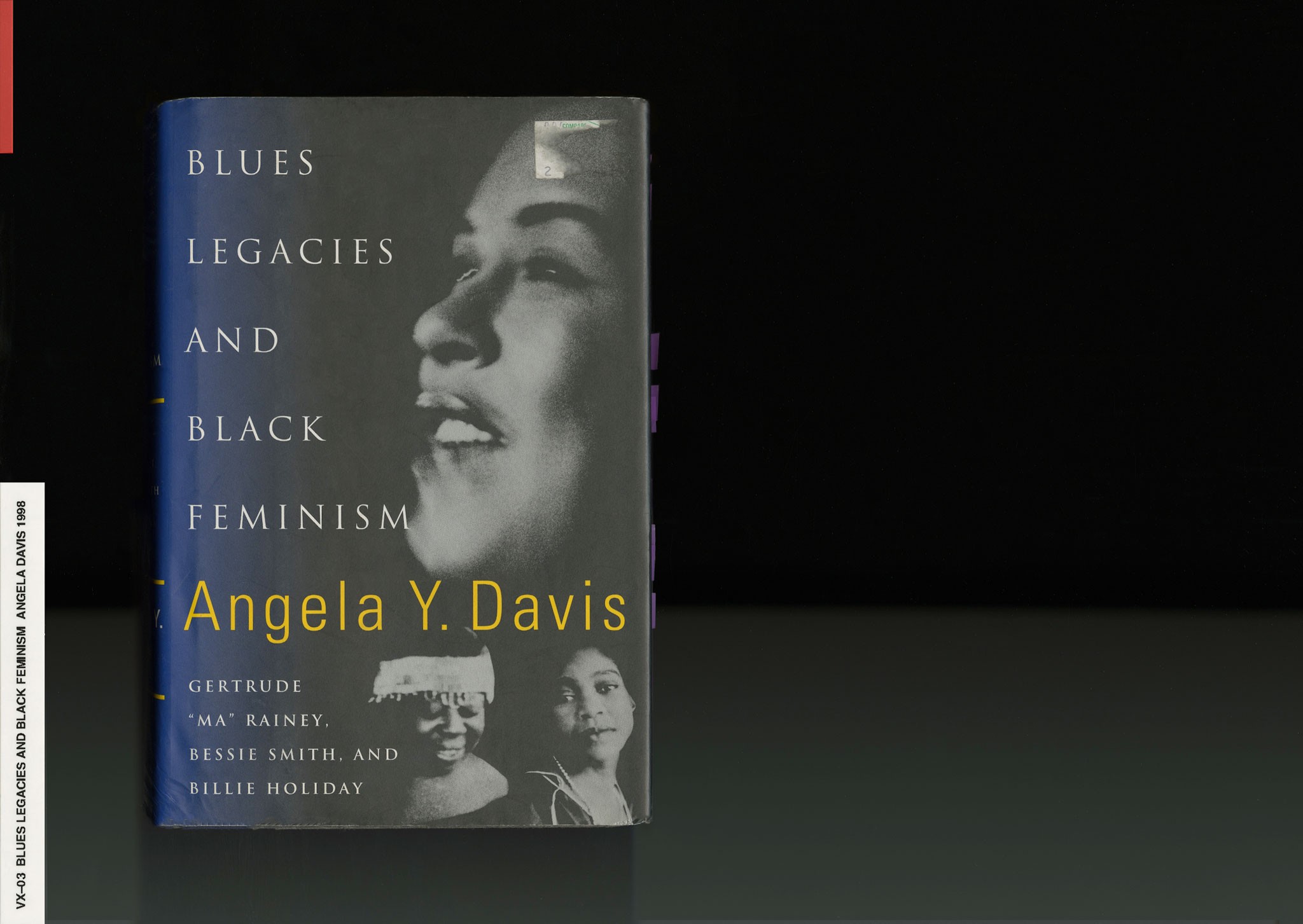
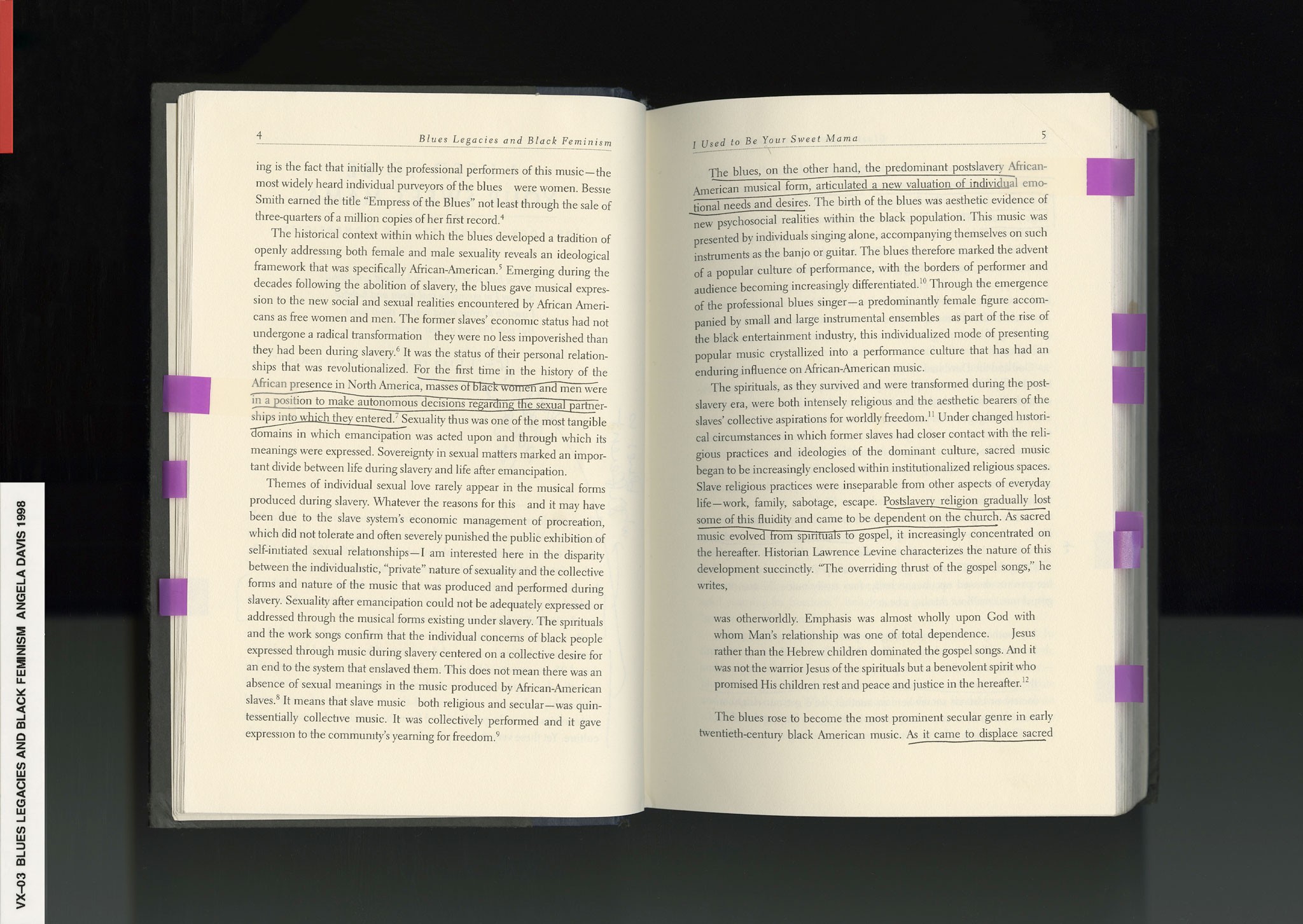
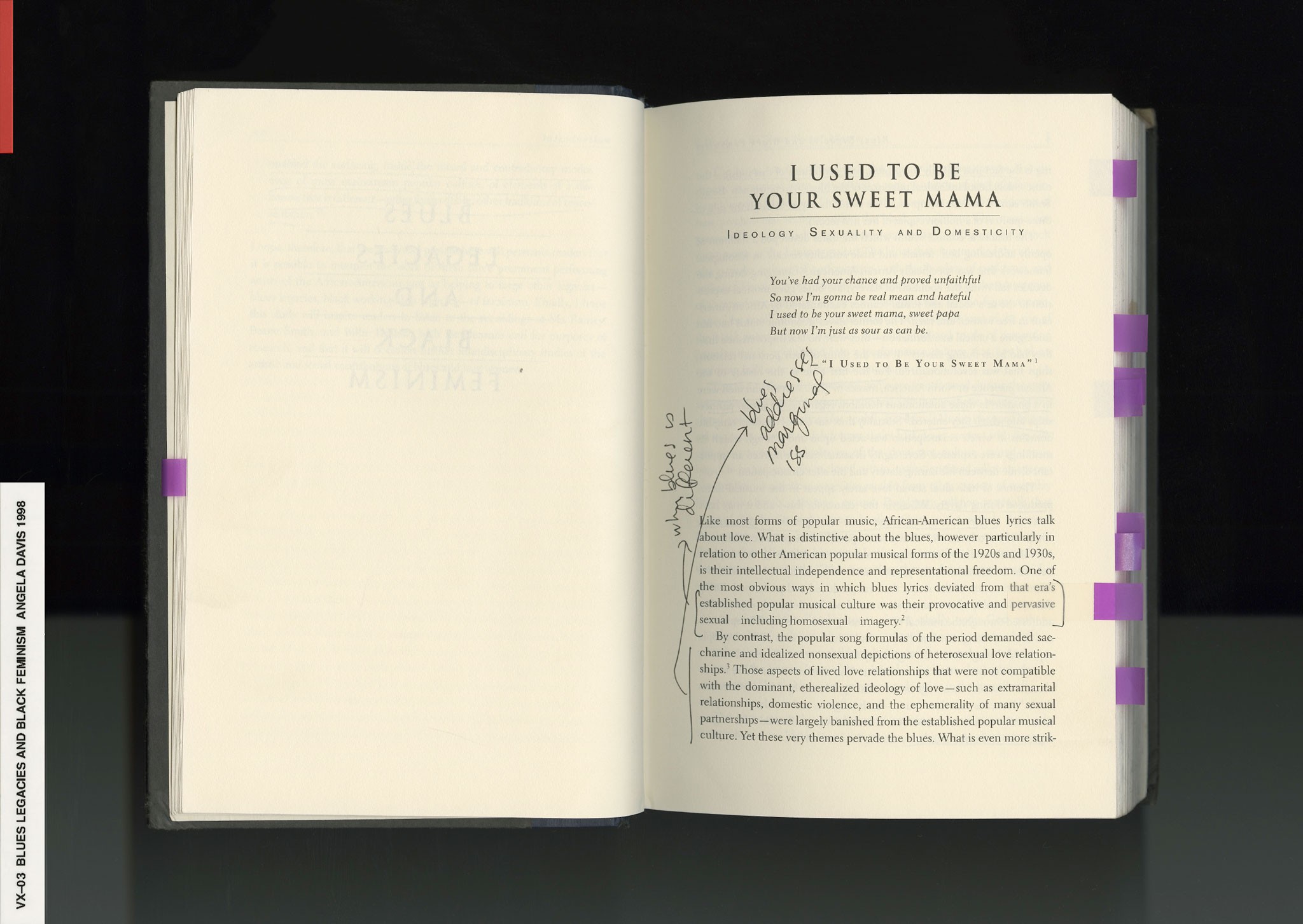
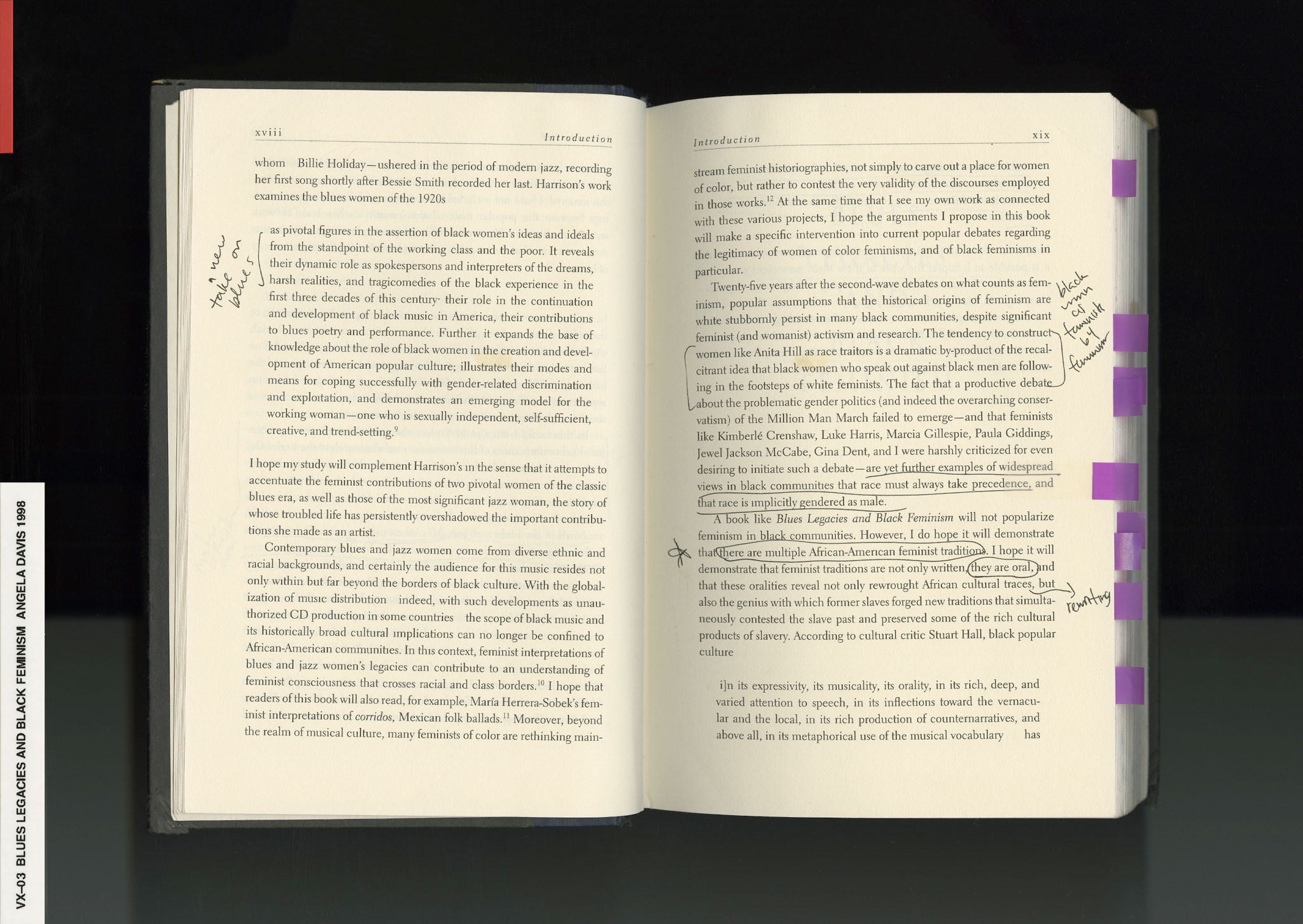
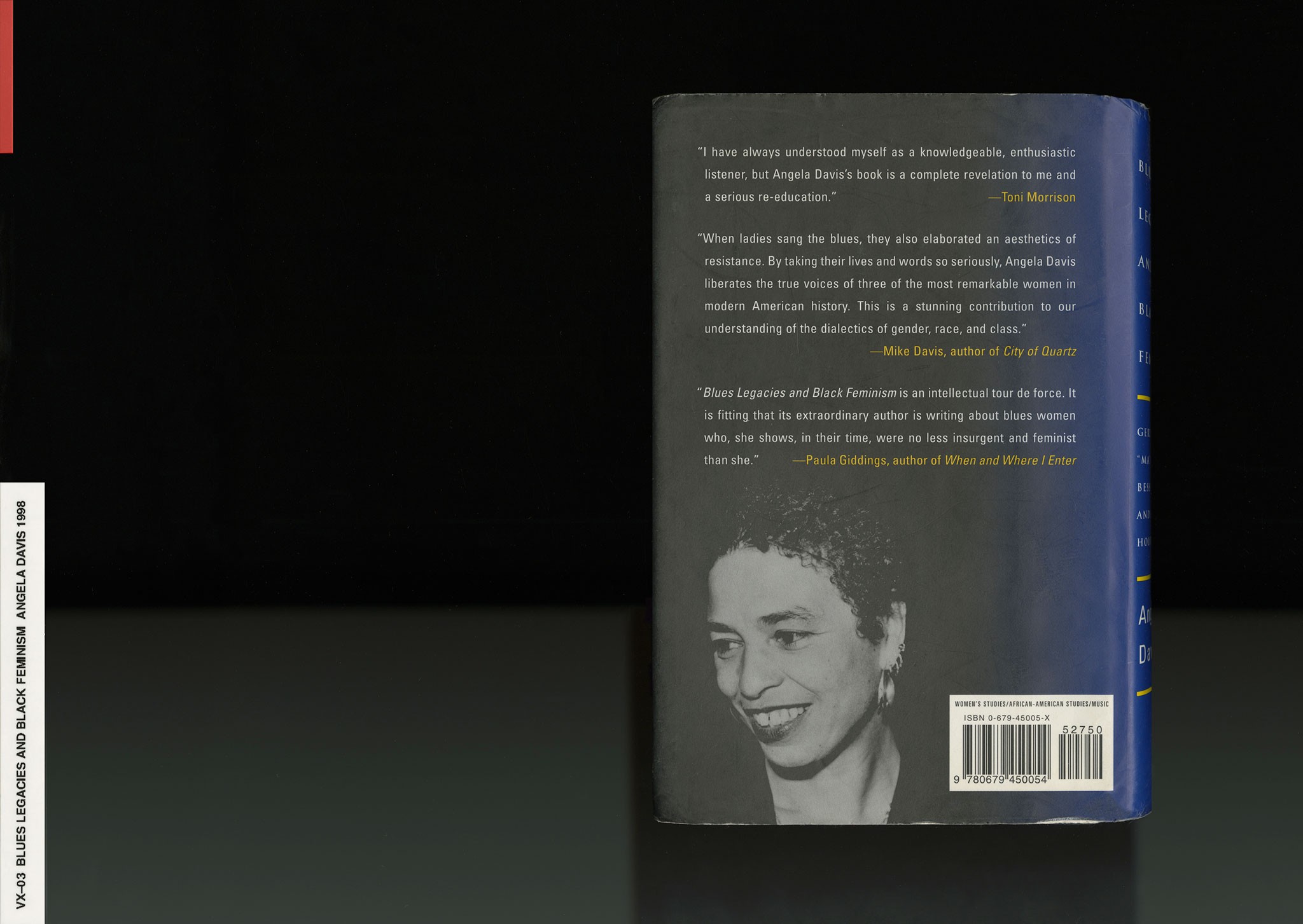
NR
What print experiences shaped your coming of age?
VX
I was definitely more of a book reader. I collected magazines as a teenager, but in a really surface level way—for posters and pictures of my favorite celebrities or musicians. With books, I was pretty hardcore. I had a really basic library up until high school, and then I started to read more political nonfiction.
I read a lot of autobiographies and biographies by primarily revolutionaries, and from there, I started reading radical black political texts like , Frantz Fanon06, and . At first, I don't think I really understood what I was reading, but I went from being in the dark to being in the light overnight.
I didn't really have a transition; there was nobody in my household who read for pleasure. My mom read some self-help books here and there, but for the most part, we were a Bible type of household. My grandmother would sit in the living room and read the Bible for four hours a day. She wasn't reading the newspaper—we had the New York Times available for school projects, but my parents weren't really sitting around reading it and talking to us about what was going on in the world.
To be frank, this all happened around the time I started working at the children's library. I was a part time assistant my senior year, amongst a few jobs. For the most part, I helped with programming and, on occasion, I would restock books in the adult section, which allowed me to understand the trajectory of a reader from two years old all the way through seventeen. So I think that's when I really started becoming obsessed with books. It was part of my lifestyle at that point, because I was in the library every day, even though I also worked at the mall.
That year as I graduated high school, I had two jobs at the mall and one at the library. The mall jobs were a different lifestyle—they put me on clothes and sneakers, and the library put me around books—my awakening really intersected with that job. At the mall, was selling Che Guevara T-shirts, so I got one and I knew that it was controversial, but I didn't understand until I read his book. At school, I got in trouble for wearing it on Dress Down Day. They were like, ‘he is a communist, you can't wear that to school’. And I was like, ‘what are you talking about’? Because you're young, so you don't really understand the severity of where people fall on a political spectrum and how much fear is created around certain kinds of ways of thinking.
So from there I kept reading books by revolutionary thinkers, philosophers, and activist’s, and that's where I had my seminal literature-personality-building moment. Before, everything I was reading was stupid shit that you'd have to read in school, or things that everybody read from the book fair; or Baby-Sitters Club—you'd read that for fun. Then you'd read Grapes of Wrath for English class, and it'd be like, what the fuck is this book? You know who else I remember I really loved reading from a young age is William Faulkner, because he was such a weirdo. I think it was in, like, AP Lit or something like that.
And then when I went on to go to college—even though, like, I started off studying math and science as a pre-med biochem major—I ended up in the arts, gender studies, and art history.
NR
At The New School?
VX
For part of my schooling, I went to The New School and then to another college (but I didn't like it so I left). I started learning about art and different movements and realized there's writers who deconstructed the genre using language. I took a class my first year of college called Toni Morrison—we only read . We went through her books with a fine comb to connect numerology, symbolism, and poetics. My books were really marked up. The class was almost fully dedicated to her use of mythology in literature, and how she puts code and magic into the way she uses words.
A year later, I read Octavia Butler and that put everything I had been studying and thinking about together—revolutionaries, activists, autobiographies, stories, and the politically-engaged work of nonfiction, philosophical, and political texts. It was almost campaigning in a way, because a lot of those books were about how we want to see change and how we want the world to be—Pedagogy of The Oppressed07, or books about education or reform in general.
Taking Toni Morrison led me to Octavia Butler, who I would definitely define as one of my favorite writers—if not my favorite—because she's able to intersect sci-fi, history, black history, and specifically radical politics and social justice. And it's all fiction. That coupled with studying biochemistry and thinking that I might be a doctor when I went full pre-med my first year of school.
That's where my literary journey is the most pronounced in my life. After school I started doing music, and there were some books that definitely changed me. I remember reading Voltaire08—it was about travel—it was fucking magical.
I read lots of things, but those were the things that stuck and gave me a sense of direction and inspiration, because it was part of developing my personality—at a time people wanted to develop their own personality still, when there was not a lot of social media at all. People don't do that much these days.
So, the only way you could really do that was by finding albums, texts, or clothing that you felt connected to. And then from there, you would kind of make this personality up. Now it's a lot more follow the leader. One person decides, and everyone else follows suit. But back then, you didn't have as much access to know what everyone was doing, reading, or wearing, because they weren't tagging everything. After that, I went on to have a DJ career and be a lot more on the map, and I was still reading things, but I was already formed.
I already had a personality. And my personality was influenced heavily by those authors. Also studying math, science, and biology totally shifted the way I think about everything. I think people underestimate the value of understanding how the world works at a biological level.
I had a really tumultuous teenage and college era, but I will say I walked away with a really clear idea of who I wanted to be.
But I got in a lot of trouble—
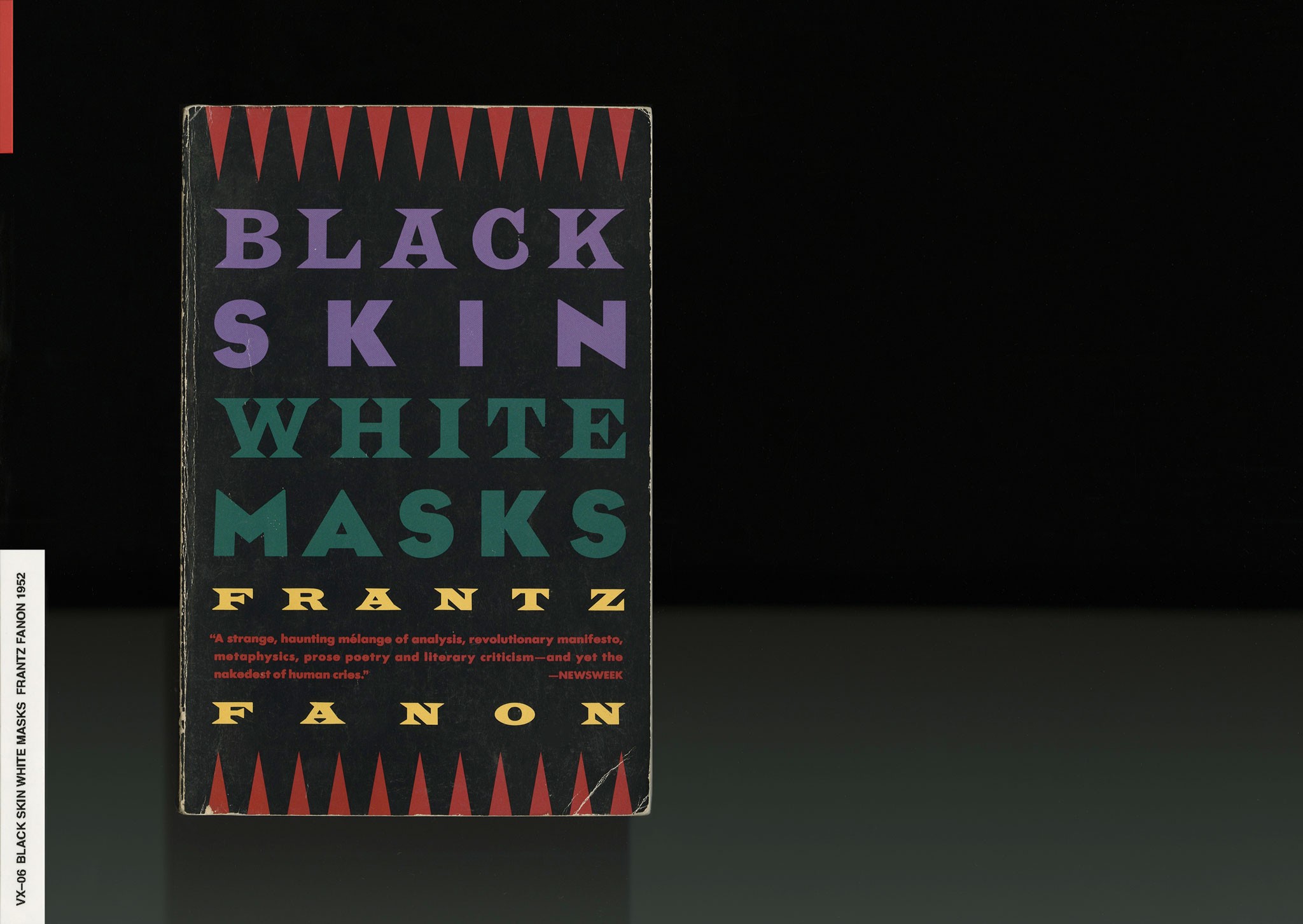
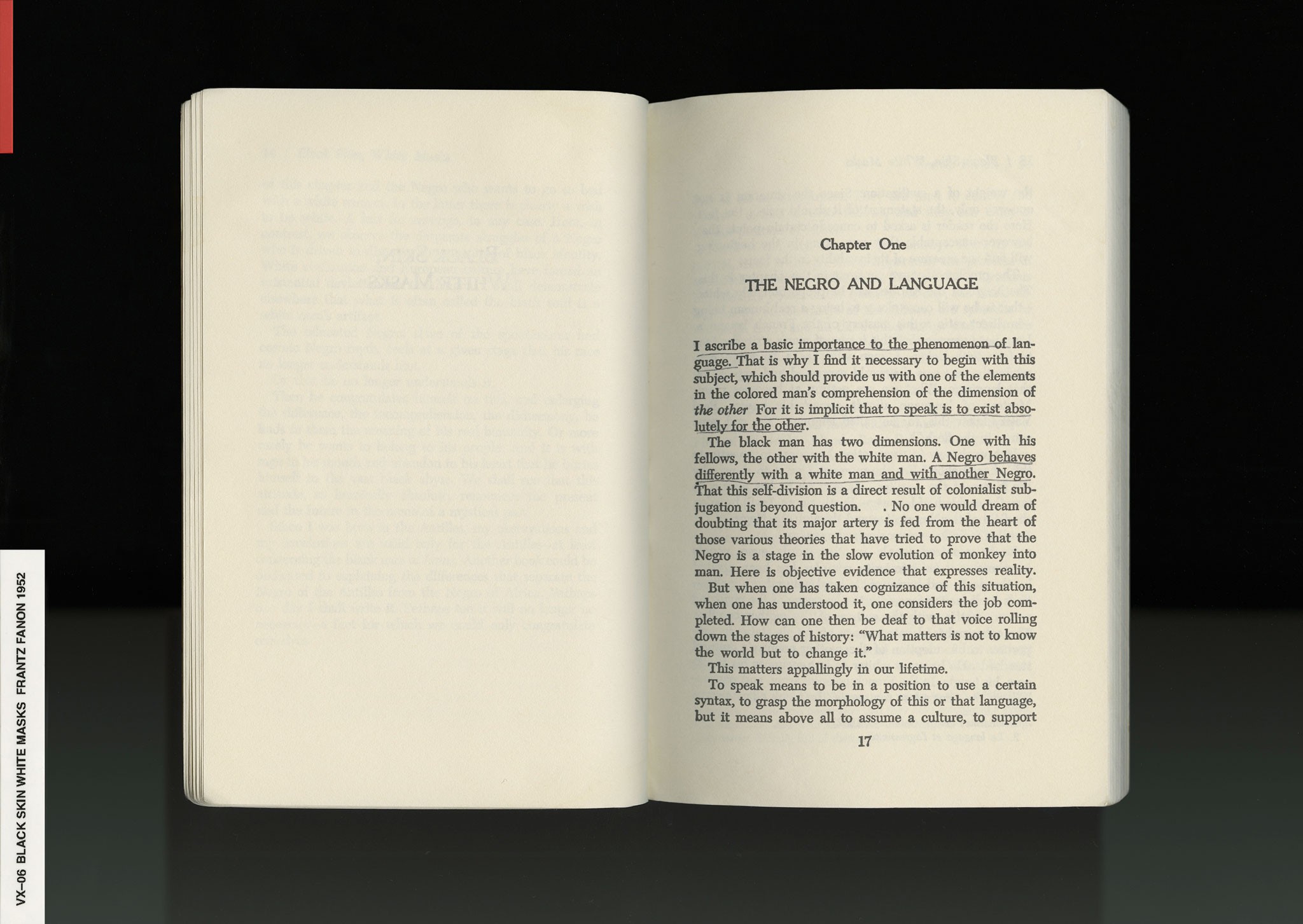
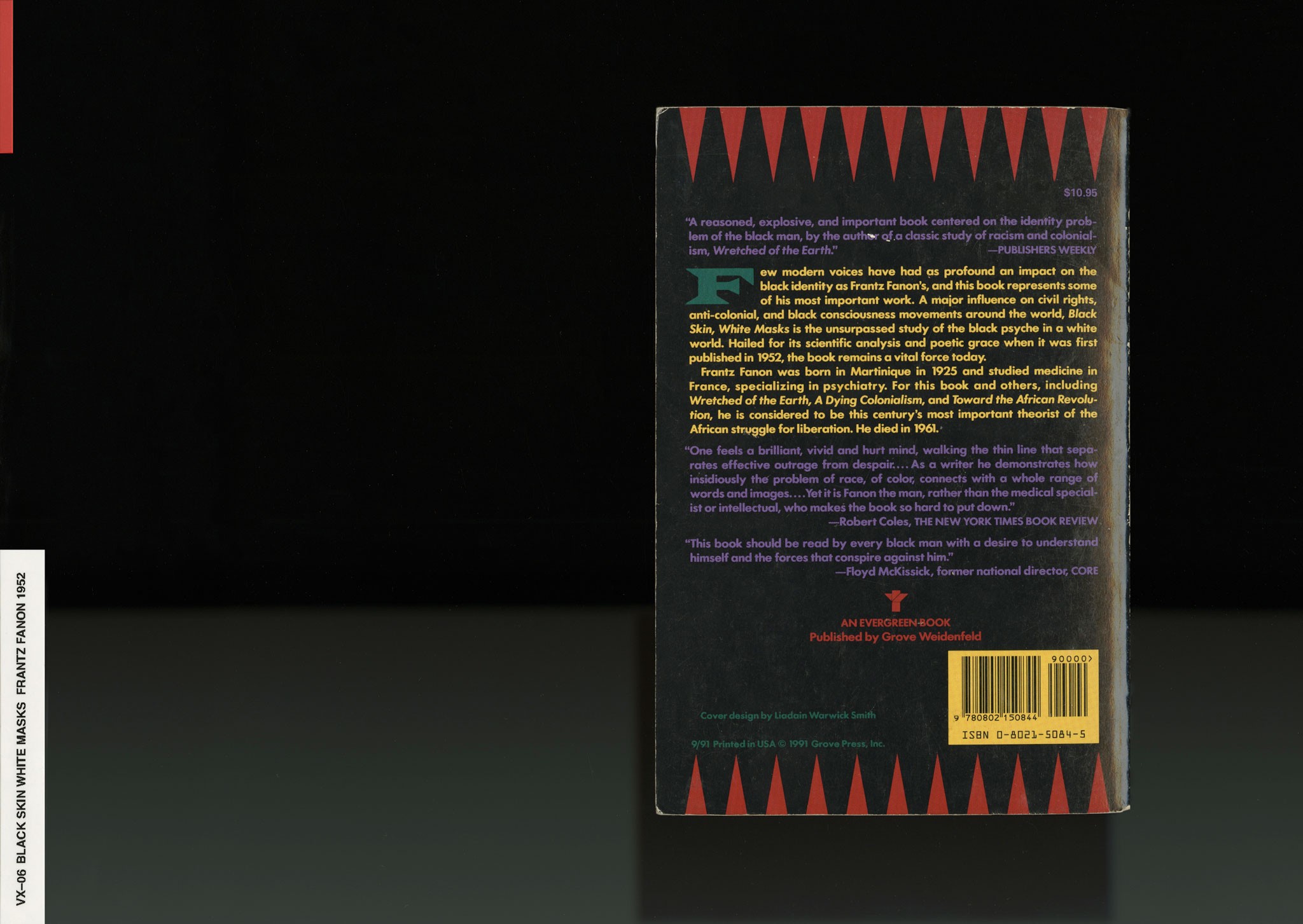
NR
Nightlife has been historically indicative of what's happening in culture at that moment in time. At the inception of your party GHE20G0TH1K, America was going through the Great Recession; social media gave rise to the Arab Spring; began his first term; Wall Street corruption; massive unemployment; and the internet was booming with subculture from Wikileaks to Twitter. How did you channel the cultural forces of that time into your GHE20G0TH1K set? What mix of artists, genres, and techniques did you use to communicate?
VX
The whole experience of GHE20G0TH1K was—and will continue to be—a language for surviving the apocalypse. I say that because people think the apocalypse is a cute aesthetic or a cool concept. But the reality is, it's constantly happening, and if you don't look for ways to process it, it's going to destroy the culture, the economy, and people’s spirits.
It's going to break people. And people are working really hard to make it, but they're working really hard in a system that hasn't created enough slots, and also has all these loopholes for certain people and roadblocks for other people, right? So the point is we chose collectively. Through curating all my friends into this experience, we created a space with music, fashion, and images. I designed every GHE20G0TH1K , but there's a whole group of people who have come from that space, visual artists who have been there from the beginning. Some of the earliest fans of GHE20G0TH1K that I can remember, I mean, not just visual, also all different types of pop stars—like, MIA, Diplo, Alexander Wang, Eric Mack, and Torey Thornton, and Tschaba Self—the names go on. There's lots of people. I met one of my favorite artists, Theresa Chromati, at GHE20G0TH1K one day. That was only recently.
So my point is that there's this never-ending cycle of survival of American and western chaos that needs to happen in clubs. It just happens to be the space where mediums intersect, people intersect, and they can deal together.
And I think that that's different from having the most popular queer space or the most fun dance party. It's actually about, yeah, we had great nights, and we danced and it was—the music was incredible and it still is—but more so, it gave people a space to be not really happy; see the world for what it is; understand white supremacy and colonization and capitalism is not something that you can escape in a fantasy; or it's not something that you can escape just by working hard.
A recession is the best time to convert people to radical ways of thinking. And I think that's what we did. So, once you have the ideas, then everything else just fills in. When you have a party, it's about who comes to the party, now you're engaging in a conversation with some of the most, intense, wild, creative people in the city once a week.
And it might only be 150 people, but those 150 will go on to be some of the most important people in these creative fields, and then they'll be able to narrate—create a sub-conscience of the masses. Whether it's through fashion, whether it's through music, whether it's through visual art, whether it's through whatever.
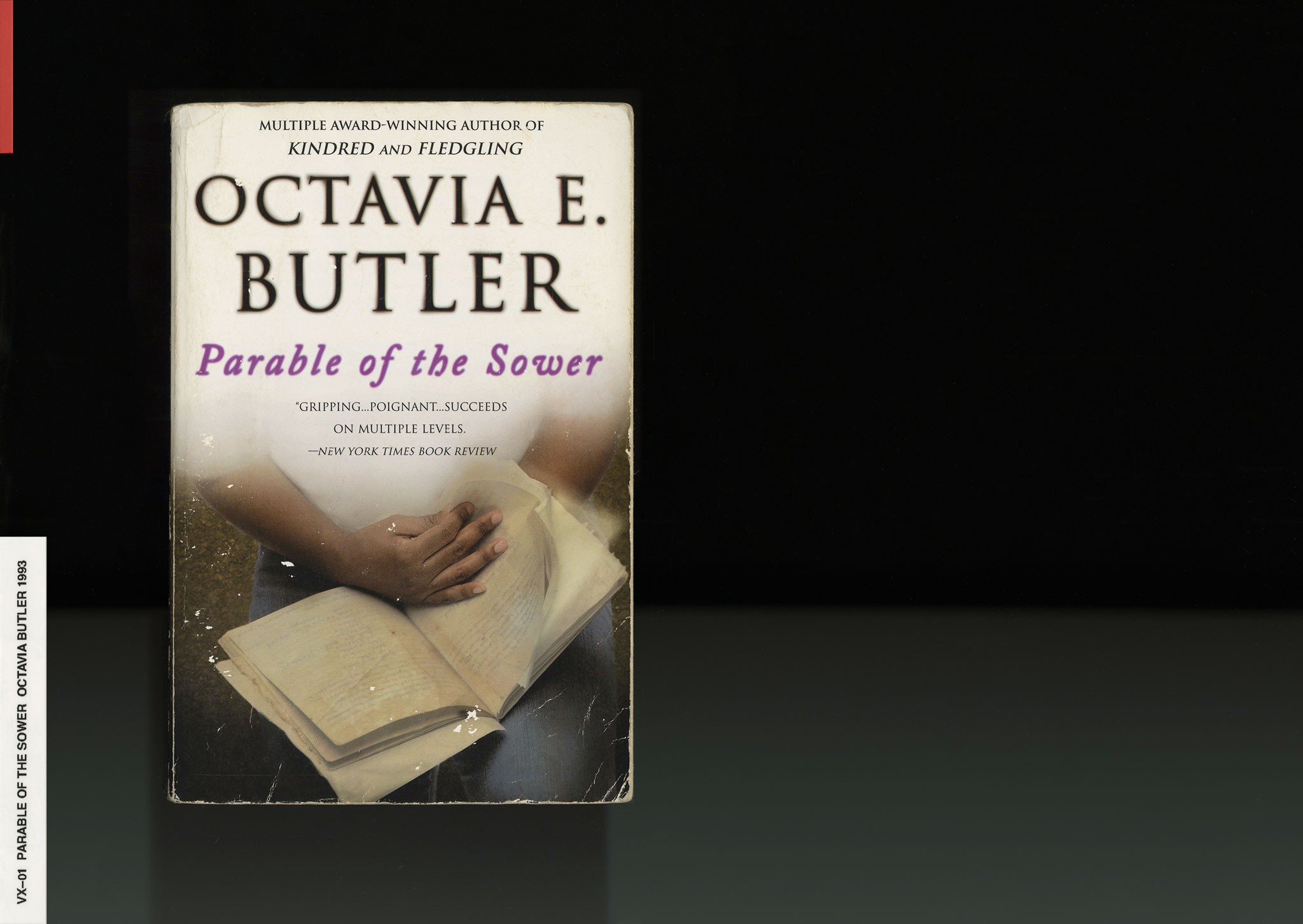
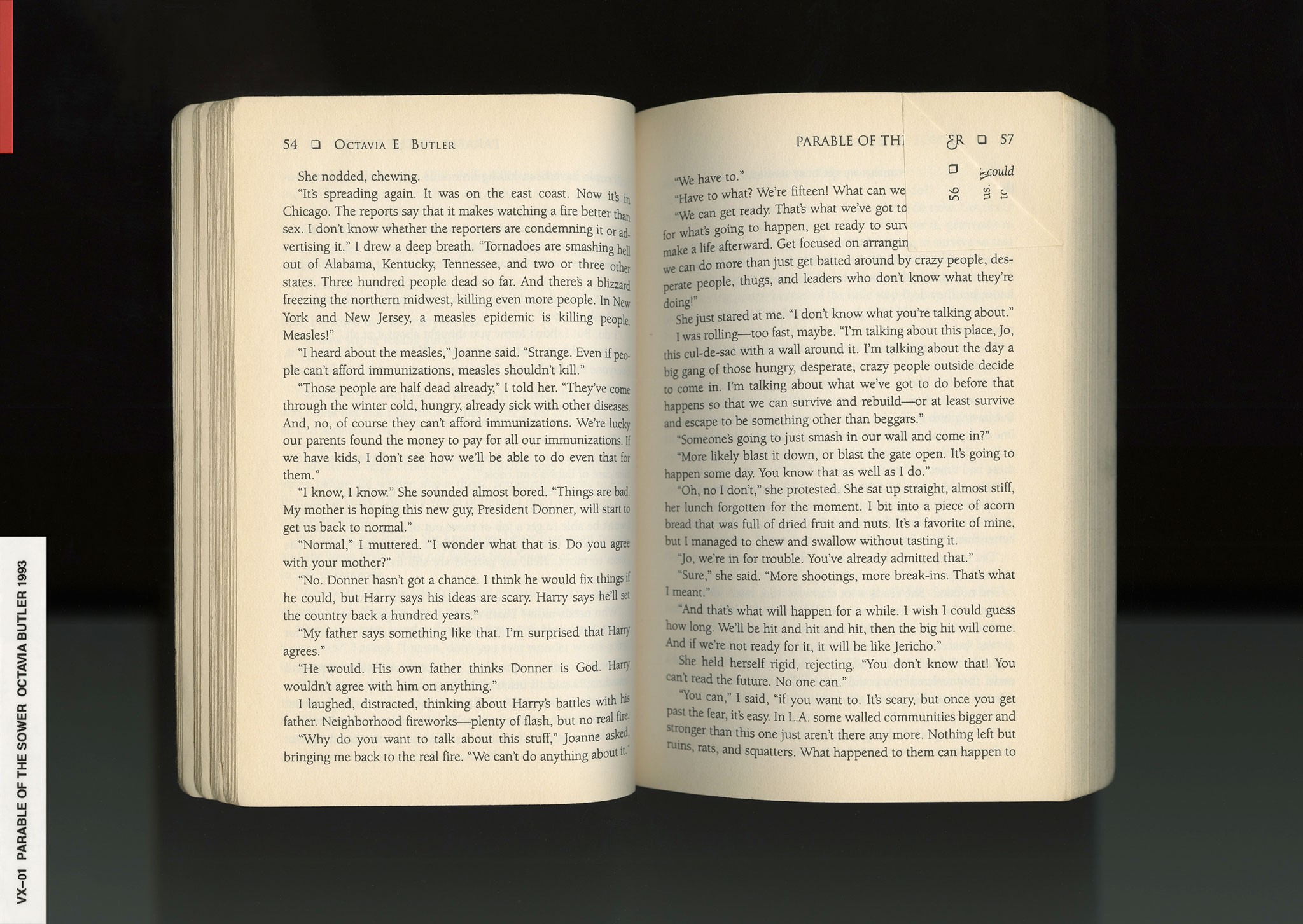
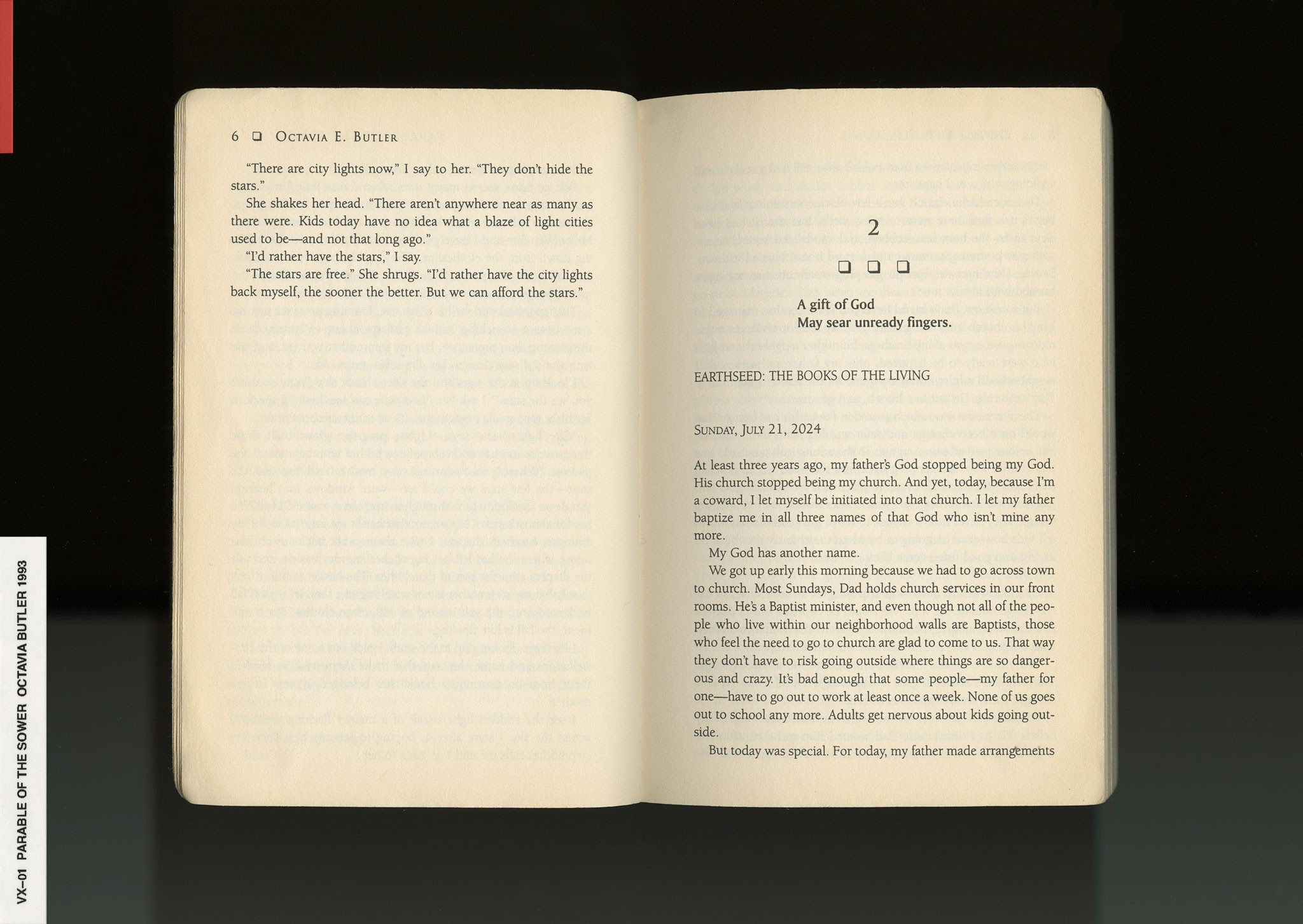
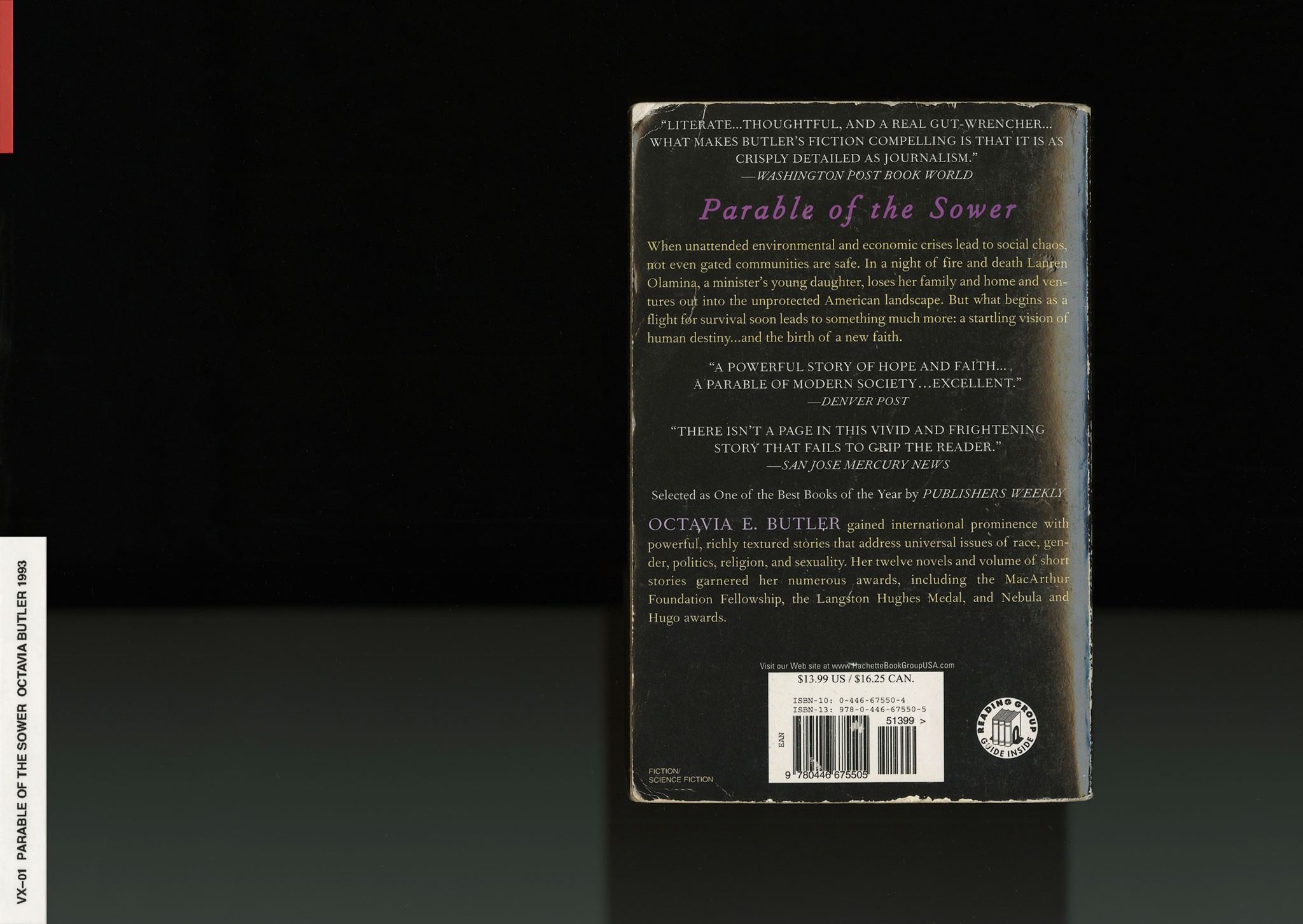
NR
You had a post on Instagram—it was about A$AP Rocky’s —when you're just talking about that time, it reads:
“It was mid summer, Shayne gave me this sweatshirt for my birthday a few weeks before and I said I would only be in the video if I could wear it. Within a month the video was on nonstop rotation and had racked up something wild like 50 million views. Hood By Air was not my company and I never made money off it, but something told me to make sure I leveraged the exposure and soon the brand went viral. This is organic guerilla marketing born from authentic youth culture. This energy, this momentum was created out of pure timing and genuine support. We didn’t have instagram or any merchandise to sell, but within a few years the company was selling $10 million plus of clothes. Everything is possible when you are genuinely working day and night and holding your people down. I learned hard lessons that year, but I feel capable of anything now."
VX
It happened literally so quickly, but we were all on the same page about ‘whatever your medium is, we're upset’. We don't like what's going on in the world and don't like being treated like we're marginal to the storyline that is literally about us. Whether it's fashion, or the way we consume, or the way that we make places cool. And when they get gentrified, it's always about whoever is the poorest and whoever is the most indigenous and surviving—whether it's through fashion, whether it's through dance, whether it's through music, whether it's through art.
So I think when you meet that group of people, you're all from different walks of life, but there's also these interdisciplinary moments. Shayne and I deejayed for years back-to-back, and that was the GHE20G0TH1K experience. If you wanted to understand GHE20G0TH1K, you had to catch me and him in a warehouse for a solid year and a half—maybe two—two and a half years, or maybe even three—I would say at least three years. He and I were actively like, let's go back-to-back, you know?
He was a designer, but that was his sketch/mood board moment, and he was able to experiment with fashion. Also, you can't place his work within one context. He still does music, and he's made so much music for his runway and stuff like that. On the other hand, I'm doing all the visuals for GHE20G0TH1K, and I'm not really talking about it, but 10 years later, you have all these flyers, and they all represent different moments in the trajectory of the imagination of GHE20G0TH1K and what we were as a collective.
Right now, I think things seem kind of put-together in a way, but they're not. So it's interesting, because it's also in time with another incoming recession.
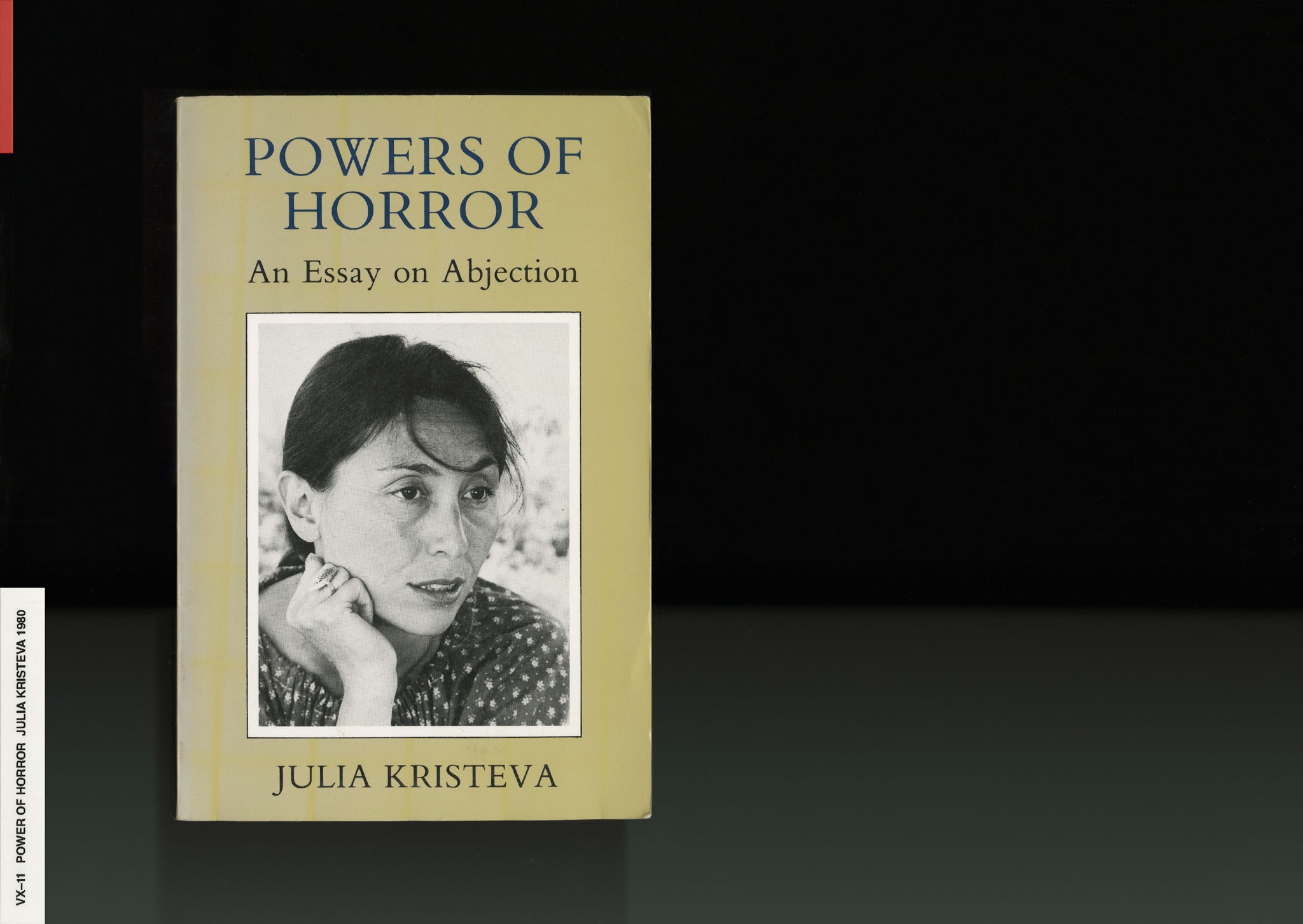
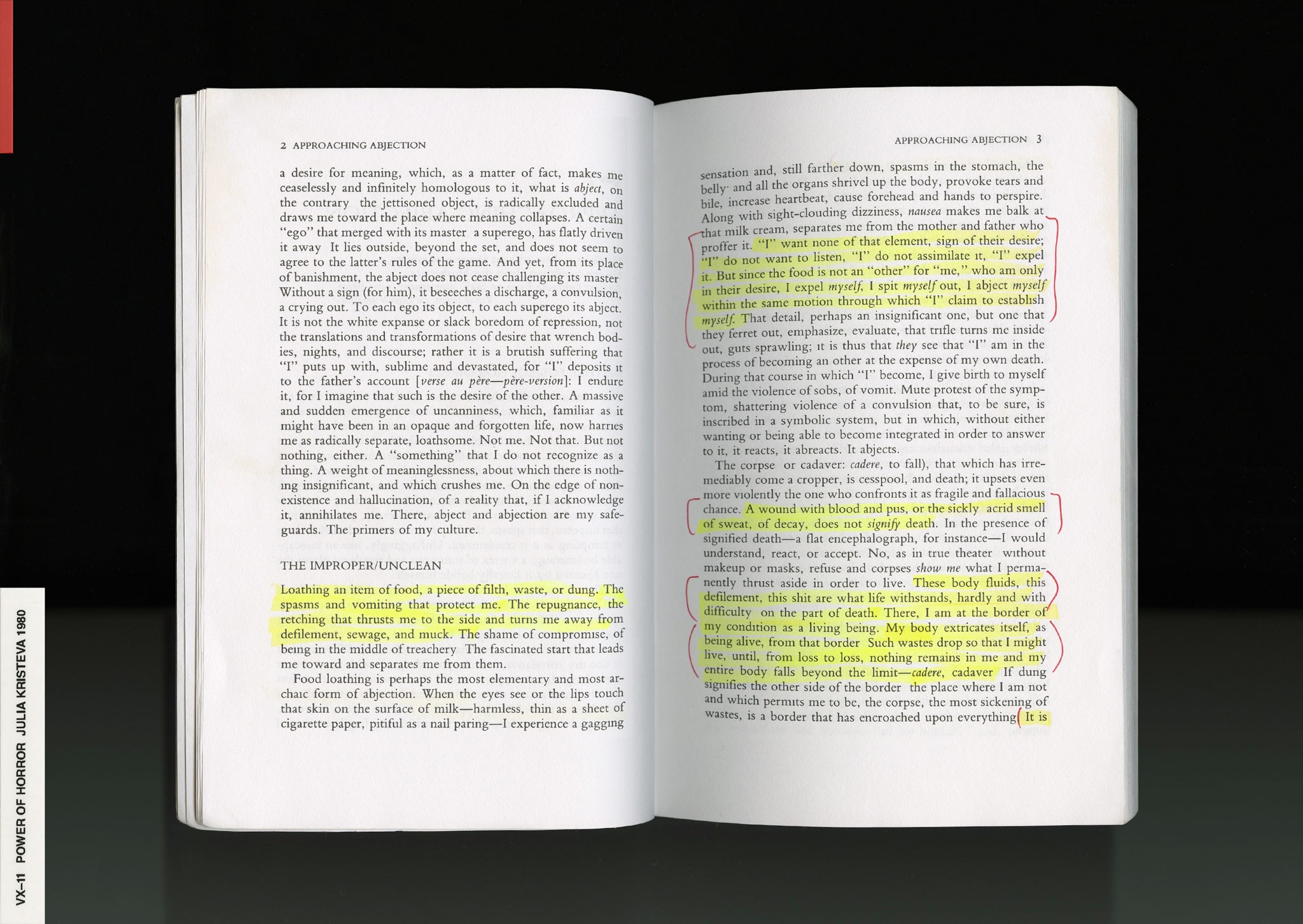
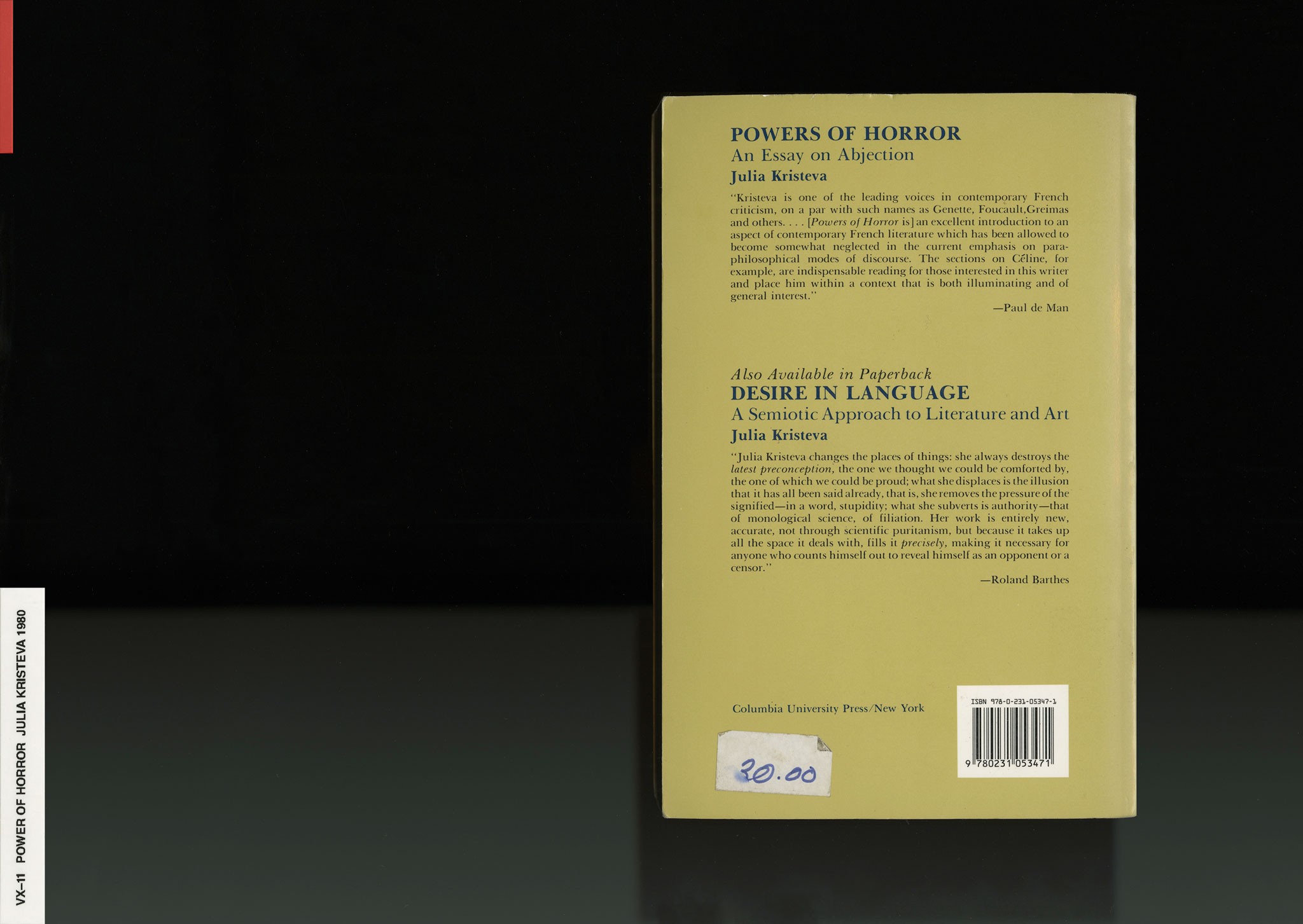
NR
And what do you think is going to happen now?
VX
I don't know if another version of GHE20G0TH1K is going to happen, but I know for myself, I'm excited to understand the process a little bit better of how to navigate an economic collapse, or being a young person of color in a world where the resources are depleting. Hopefully, there's also going to be a new generation of people who can add to the dialogue. This generation is minimizing the importance of being revolutionary in the arts.
I don't know what's going to happen, but I know that I'm working on art. But I'm also just interested to see how this economic recession is going to affect people who now understand that they have the tools, you know what I mean? To ride the wave, but also the knowledge that they can leave. I've traveled the world since then, and I know that everything is not like America. For me, I think it's going to mean bringing the ideas and the experience of taking that ownership of time and space for a generation to other places.
I think that there are a lot of people that need to experience what we experienced here, and I don't know that it'll look exactly the same, because I'm not going to know or be able to go through that again. The Shayne's, the , the Total Freedom's, the Asmara's, and all these amazing people who are around me. But it's okay, because it's almost like now, there's a gospel, and now, there's a way of praying. In a way, it goes back to something that we haven't really talked about, but it's actually a book that I've been reading lately—
It's called Last Night A DJ Saved My Life09, and it talks about the shamanistic origins of deejaying and how shamans were responsible for facilitating a drunk or hallucinogenic experience. So they soundtrack it, and they control the environment for the takers. As a DJ in clubs or in raves or in warehouses where people take drugs—not that I'd administer or that I have control over drugs—DJs are theoretically making these people feel altered. I have to navigate their experience. And so I think that New York now has the tools. We've given the formula away.
There has been no shortage of inspiration provided, or of access to the spaces, but there are at least 25 other cities that need to be woken up in the same way. And this is a dedication to the church of revolution, I guess? I don’t fucking know. If you always think with revolutionary mentality, either you'll always be on the cusp of the greatest next thing, or you actually will save the planet—one party at a time. I mean, I can't save the planet, but I can just help people understand how to save the planet. And I think people are getting it. People are understanding that you can democratize narratives on the dance floor, but also, that inherently guides, like laying the foundation for people to be more self aware and to be more self actualized.
Which is ultimately the goal: more people understand themselves, their power, and have a space to experience all the varieties of feelings that they have—not just, ‘I'm drunk it's Friday let’s party soundtrack-to-the-party-Top-40’. It's like, that's cool but a lot of us are trying to genuinely find some form of therapy and healing inside of dance and music, which is the original point.
Either that or worship—worshipping, obviously, whatever your god is and yourself as a god—the practice of euphoria. You know, movement, which leads to euphoria, down to and through sex. Last Night A DJ Saved My Life says something really interesting about how dance is the perpendicular of the expression of horizontal desires. So in a way, sex—and obviously anyone who's had real sex knows—is transformative.
And when you dance, you can achieve a level of euphoria similar to sex by yourself or with another person who you are not necessarily that close with.
So the point is, a lot of people are going out as consumers, and they just need a little break. It's putting your battery on charge, but you're not really getting new energy. You're just numbing out. You're a robot, and then you get to sit in this machine called 'Friday and Saturday night club life'—brunch-and-shit—and then you're right back to robot life on Monday. But other people are desperately fiending to have sublime experiences within this reality. So my job is to provide that.
And my job is to try and navigate my ego inside of a space where ego and narcissism is pretty much the foundation of most careers; entertainment, music, and all things related to selling yourself. And those are very ego-based narcissistic jobs. DJs are just now starting to become pop stars. Instagram has made it so that deejaying is obviously part of the whole ‘if you're famous, you can do whatever you want, you can be a DJ now’.
But there's still a job to be done in every single city, and more importantly, in the bigger cities that impact the rest of the country, wherever they may be. And so the future looks like me and everyone I know kind of doing exactly what we've been doing, but bringing it to new places and reinforcing that way of being, thinking, and dancing in new places.
And I think trying to find ways to do that subtly, so that we're still accepted commercially and we can still make money, but that at the core, is still a cool experience and changes people in the way that things in the past have done at large scale—like the , you know? Those things were associated with drug use, specific kinds of drugs, and I think now, we're in a space where music is a drug in a way—and we've definitely experimented with that level. I mean, I'm not going to sit here and tell you we didn't do tons of ecstasy or molly—we did—but the music was as good as the drugs.
So we called them audio drugs. We talked about mind control, we talked about being able to subconsciously alter people's understanding of something through deconstructing and reconstructing musical narratives. All of that stuff has always been a part of the practice. So if you think about it, it's like we're just going to go do some sort of shamanistic work where it needs to be done, and we're going to call it music and deejaying and entertainment or whatever.
And the real heads are always going to know. And the rest of the population, they catch up when the catch up—they caught up with HBA. Maybe there'll be another moment like that. But I think, regardless, everyone is still really interested in being able to tap in. I know I am, and I know that now I just see the world bigger and I see all those pockets of New York and all those pockets of people at the party in a much bigger way. So I see moments and DJs that we've brought and, like, audiences that we've had and I'm like, what if I go there? You know? Not to take up space, but this as a school of thought—this as a way of a way of moving through, deejaying in the practice.
NR
Yeah, and the dance floor can be one of those rare moments where you have people’s full attention, like body and mind.
VX
Mmhmm. You want to. In the Instagram world, it's a little harder, but you want to. I think that's the point. GHE20G0TH1K had a no-photos rule at first, so that—I think—being at the core of what people know it to be and what it is, is that it’s always going to be a place where phones are not going to make sense. They don't have a place at that party. That doesn't mean we don't want people to acknowledge that they're there, but being on your phone the whole time—or at all—is kind of not the point. It's not, I mean, I'm not opposed to flashing lights and big shows, those are great, but I think you have to continue to help people get to that point where they lose their inhibitions.
NR
The phone is an arrow back to self.
VX
It's narcissism.
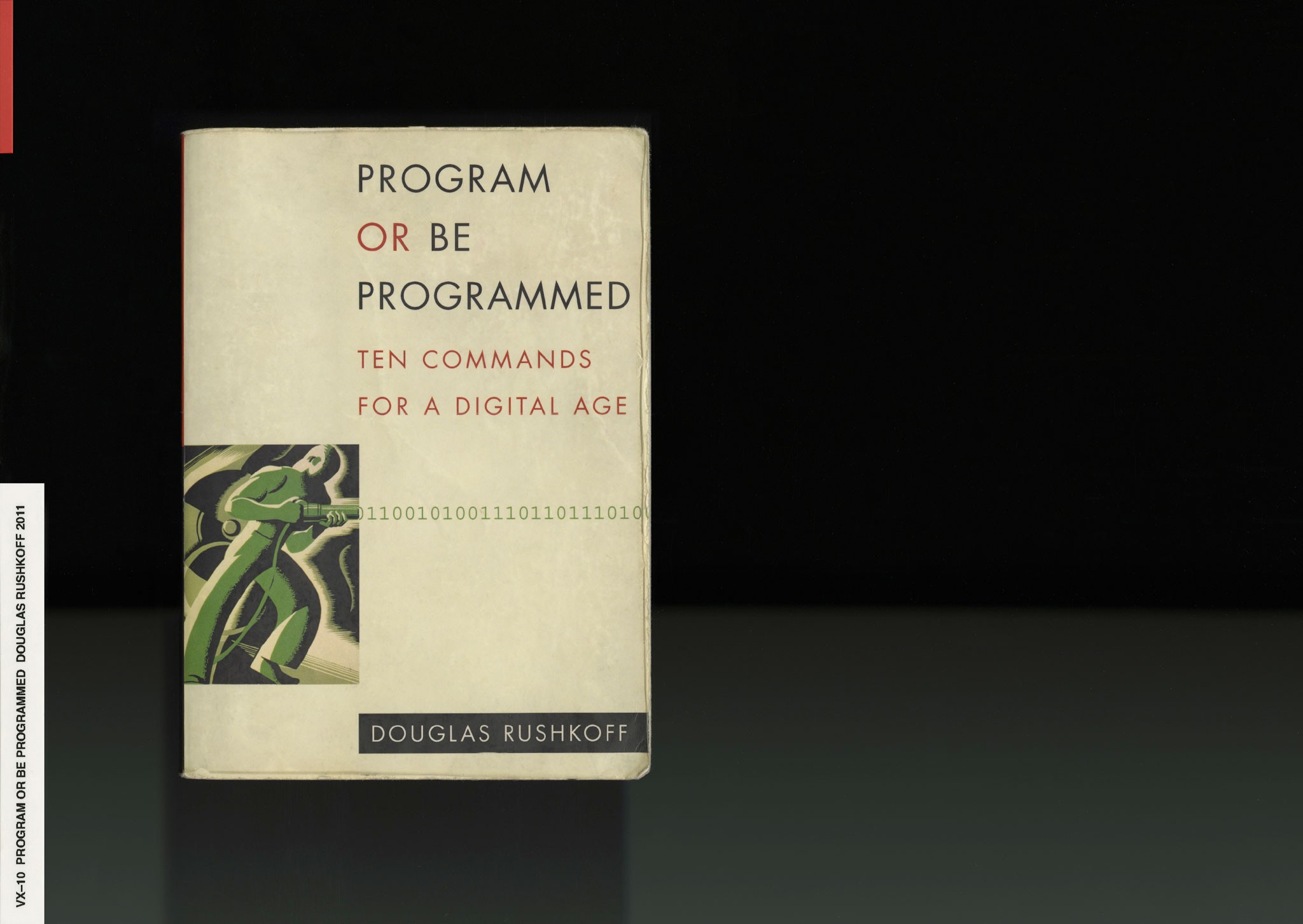
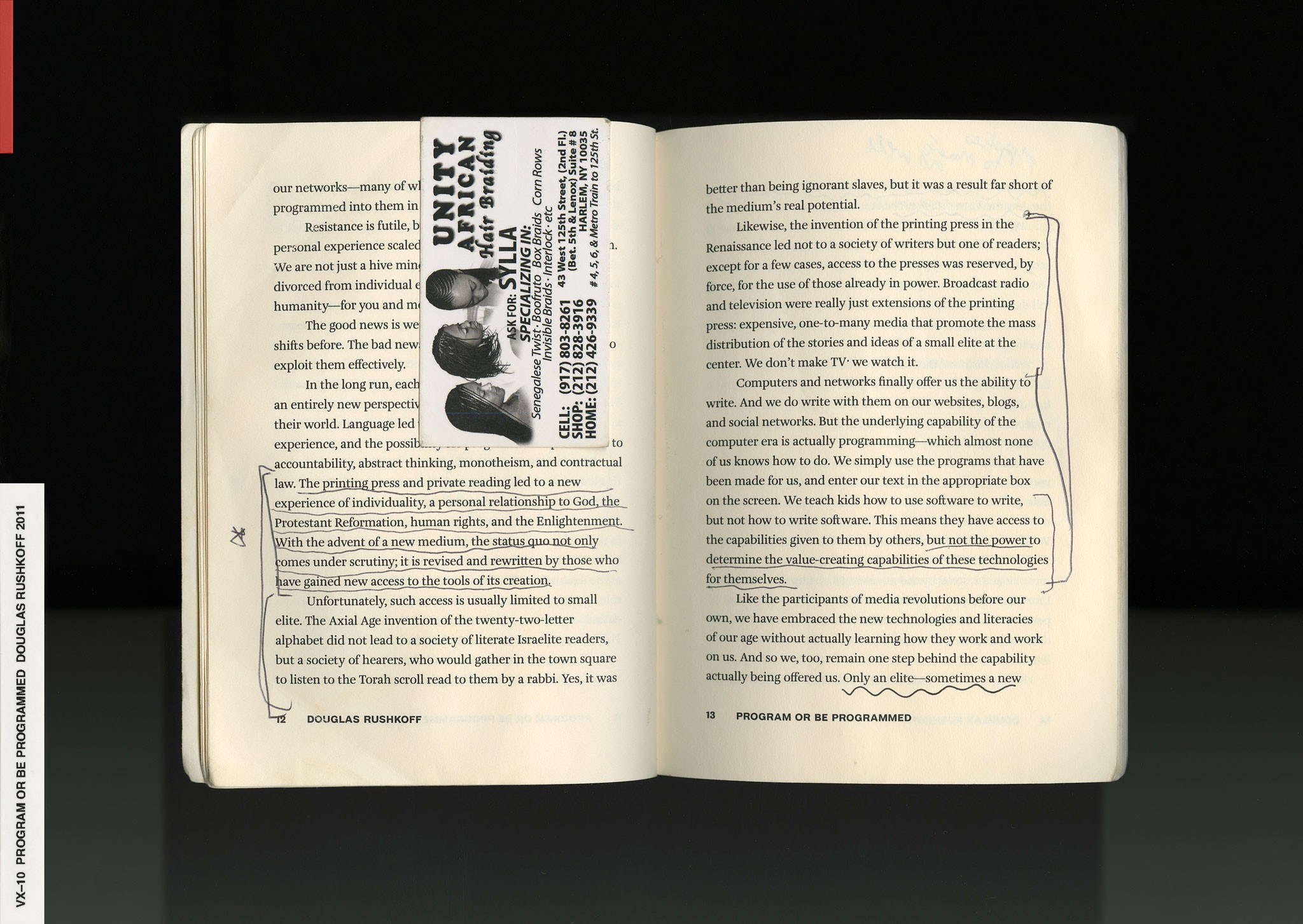
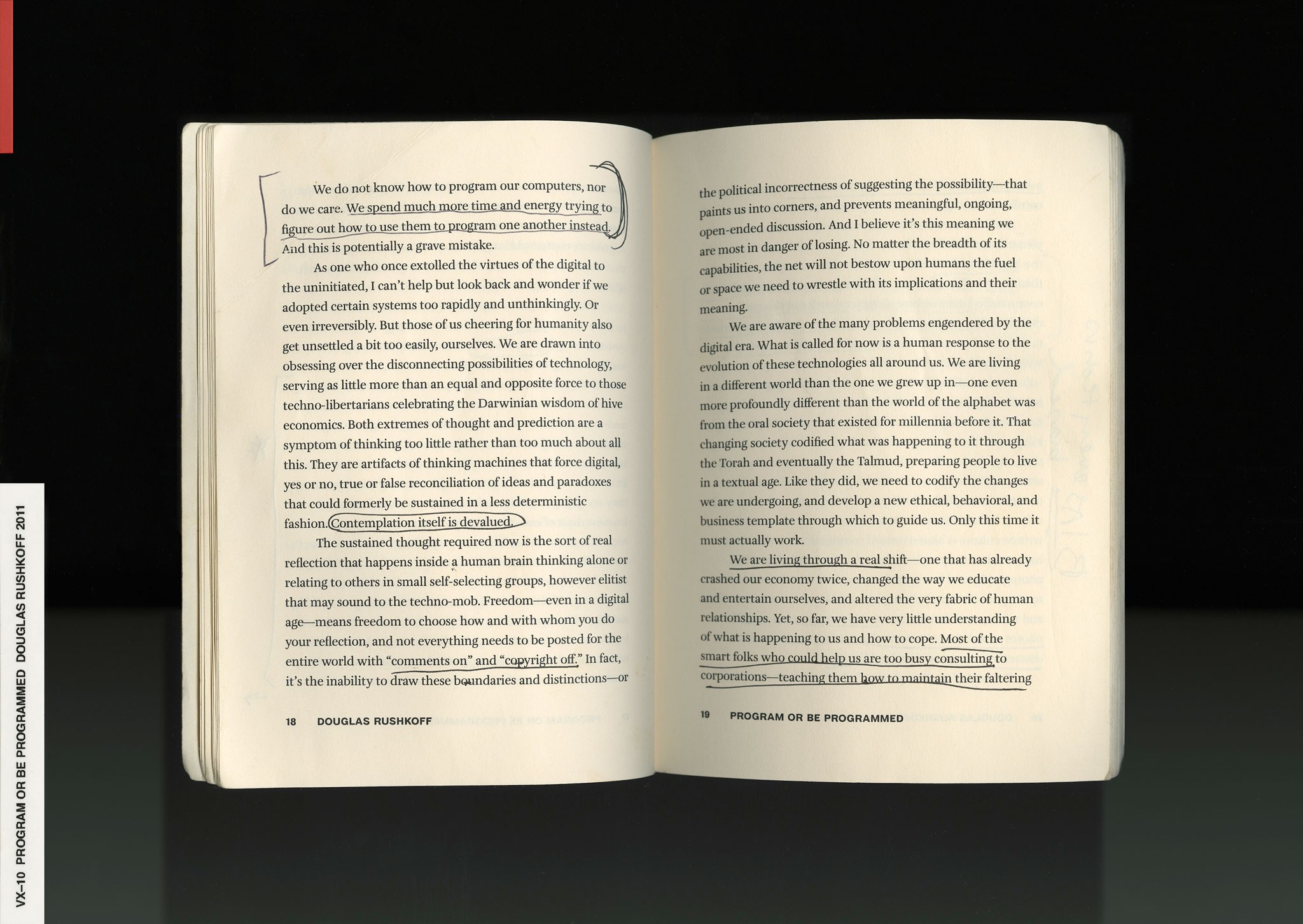
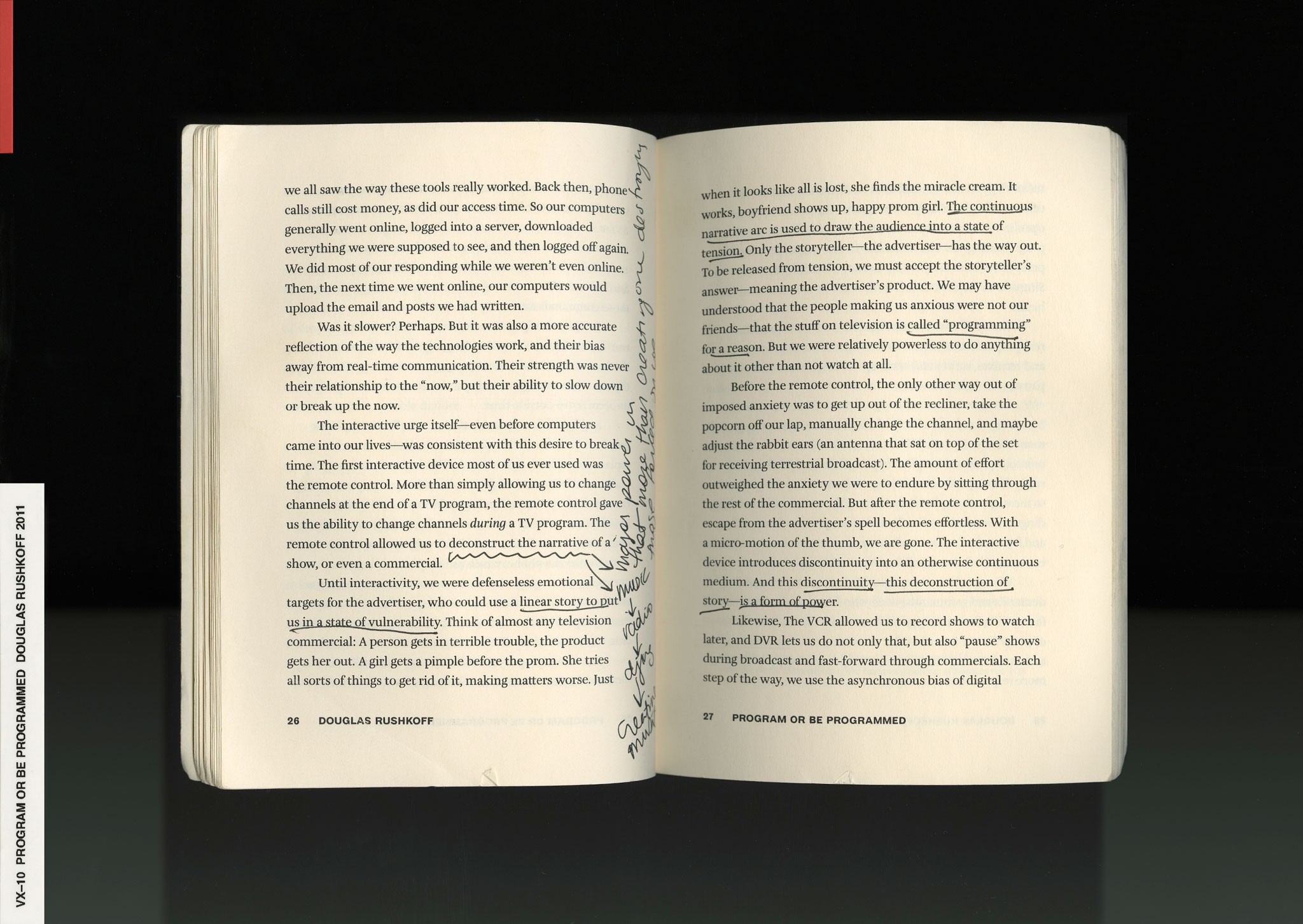
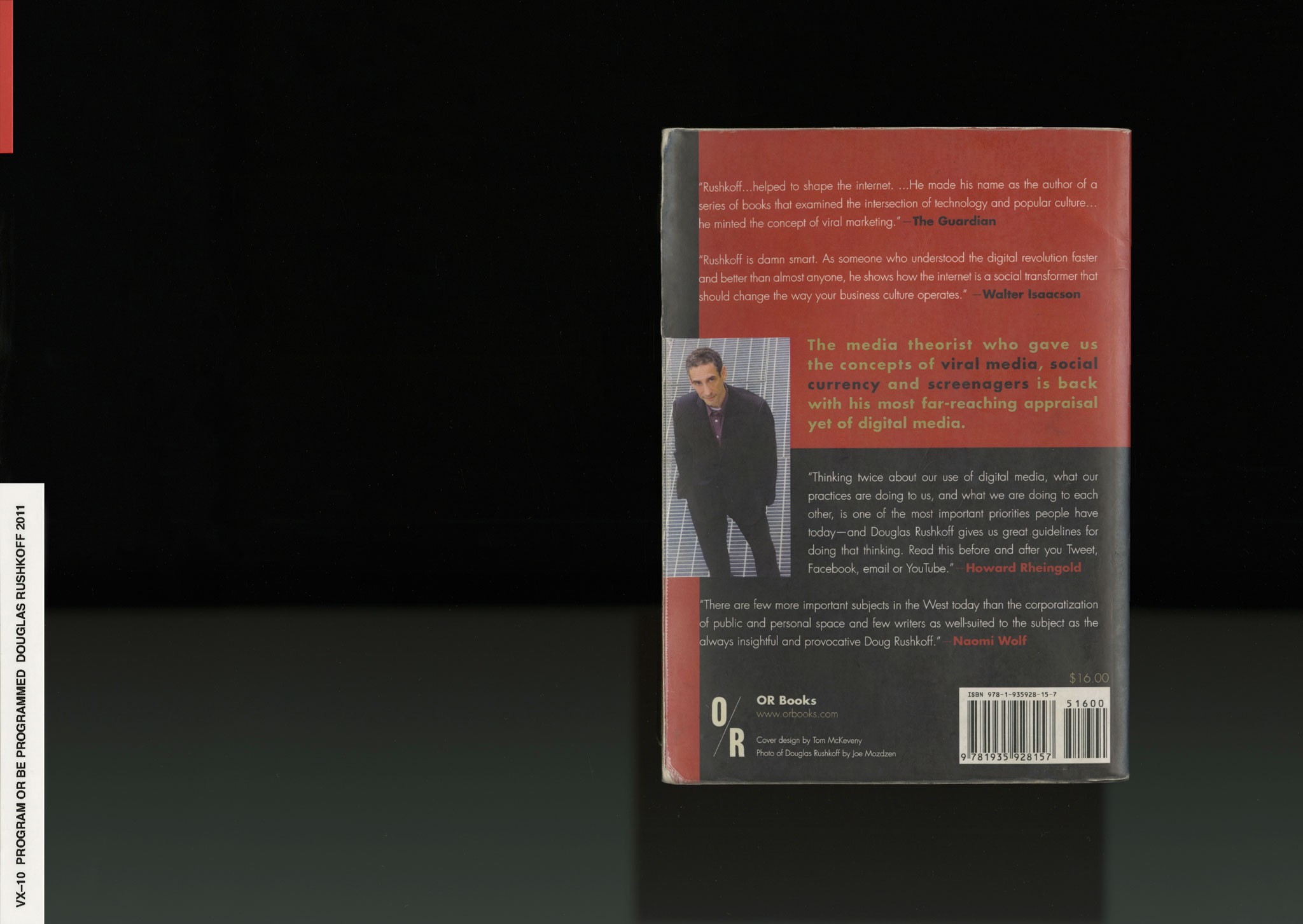
NR
You’ve said “to climb the industry ladder you’ve had to give up social power as a female." Can you speak on this—what advice would you give to the new generation of women interested in music?
VX
I think it's changing, but it's still very clear that you don't see as many women in most fields as men. I would just say that the main advice I have for people is to get really good at your work so that even if you piss everybody off, you still get booked with a real audience, within a real matrix that really gets what you do. If you just want to be acknowledged, but you haven't put in that work, you are going to face a lot of challenges, and you are going to have to lie down and take a lot of shit. At the end of it, you know, I was very obstinate with most people, most men, most power struggles. I was like. No.
So my point is that you have to create something on your own that is valuable without anyone's approval, and without anyone's bullshit. From thereon, the world is pretty much your oyster. What I learned in my experience is that when you do something special, people will find a way to bring you closer to them, and I've been everywhere in the world. Literally. I'm so grateful—I’m young, you know? I could have spent the last 10 years trying to get everyone to like me so that I could be really ‘cool’, and instead it’s just been really great. We're really supported, had an incredible network of people around the world. I have wanted to experience what I was doing in that basement in LES in all different kinds of contexts—from fashion, to art museums, to technology conferences, to the first hologram exhibition in America, to MIT—to like, I don't know. You name it, I've done it.
I would say that, as a girl, as a woman, as a self-respecting and very difficult—some would say—person, if I hadn't spent the better part of two years with my head down, cataloging music and mixing and experimenting with deejaying as a form, I probably would've given up by now. It is really an uphill battle with men, and they like to share power amongst themselves in every industry, I think. I don't think the music industry is special.
But yeah, create something that people need—the real people, not the people with power—and also create a network of people that you genuinely care about, and genuinely can work with and not. It's hard nowadays but try not to look at how many followers they have, try not to look at how cool they are. Base your decisions off how people make you feel, how their work makes you feel. Not even just that, because people are manipulative, and people have goals and angles, and people have… you know, sweet personalities that bring nothing to the table. I'm sure everyone has enough of those people in their life. When you're creating your career, when you're creating your life, your life's work, it is so essential that you have only the people who inspire you and the people that you want to give boundlessly to and create boundlessly with around you. And so I think that, ultimately for me, even within those relationships, there was still a power dynamic of man versus woman. Even earlier, when we were talking about fashion. Fashion is very sexist and fashion is very abusive towards women.
But that doesn't mean that you can't develop a relationship with designers who are either doing work that is different from how the fashion industry works, or just, are your people who represent the things that are important to you.
I'm not saying it's not faulted. I've had a very complex 10 years; good, bad, ugly, really ugly, and definitely had fallouts with a lot of the people who I work with, and people who I've tried to work with. But the point is that everyone's successful, and everyone's been able to materialize some version of success for themselves depending on what exactly they do and how hard they want to go. So I think that the point is, for the most part, we’re family still. There's definitely a few bad apples and there's definitely some people who are compromised in certain ways. I think about the world in ways that it should change but I think, again, when you're doing the work, and when you're genuinely supporting what you like, nobody can tell you shit, because it works.
It always works. And even if it doesn't work right now, it'll work. There were times when there was just a party and then all of a sudden a year later there was a brand, and the brand was huge. And then all of a sudden a year later there were tours with MIA, and she used to come to the party. I didn't know what that was going to turn into, but I just say that I'm glad that she came and was authentically interested from the beginning, because it could have been different. It could've been, ‘oh, I want this cool girl on tour with me because she's quote, unquote cool’. Versus like, ‘I've heard a DJ, I've heard what friends each say. I appreciate the space and I understand the world that she comes from'. And I'm like, that was part of her [MIA's] experience. She decided to come to our parties on those nights when she went out. She could've gone anywhere. So I just say that to say, like, then she added me to her team and it was the same way.
I found House of Ladosha and I found HBA and—I was already friends with Shayne—but I found certain videos, images, and songs and I would be like, this is so inspiring. And I was like, I want to create this—this conversation about who's ghetto goth, what's ghetto goth. And then we became besties, and then we did a lot of amazing things together.
I didn't know—no one knew that GHE20G0TH1K was going to be cool, but it was so genuine. I remember one of the first things that Shayne and I ever did together in terms of parties and working and stuff was, I got money from The New School to bring to this loft in Brooklyn and to do a talk free talk. And I told Shayne I'm going to put HBA as a sponsor. He was like, cool. And he was like, so what do I have to do? I was like, just promote it and come help me set up chairs. And that was it—but no one's doing things like that now.
And I know that, you know, Genesis is off obviously doing talks and people are doing things, but we were doing it for our community—we're two brown kids bringing Genesis P-Orridge to a random loft in Brooklyn, courtesy of The New School. Shayne wasn't going to this school, but I understood what I was doing, and I didn't really need anyone's approval for it. I got it paid for it—it was like hacking the system, setting up these seeds for later, which we didn't even know were going to be these enormous trees.
NR
As the GHE20G0TH1K movement grew, major mainstream began artificially co-opting your movement and identity. While the industry commodified your style, they presented you with unfair opportunities as an artist, woman, and person of color. You have persevered for a decade as a highly productive, influential, and completely independent artist.
Are there historical figures or mentors you have looked to for guidance on maintaining artistic integrity?
VX
For the most part, if you focus on real human beings and not celebrities, everyone is pretty much amazing and living. Well, not everyone, but the people that I focused on were; , Toni Morrison, Angela Davis, James Baldwin, , Eldridge Cleaver, —I had a huge crush on him when I was a teenager. I was 18, 19, 20, and if you asked me, who was your crush? I'd be like, I want Huey P. Newton. He taught himself how to read, started the , and died for what he believed in. He was so hot.
I want to be able to create something as amazing as Song of Solomon, even if it's just one thing. I mean, Toni Morrison made 10 other books that were just as good. And then the books that went along with her books were just as good—everything she wrote was good! But she didn't start writing until she was 40. So, once you know things and you've really understood how art, literature, music—but not entertainment, commerce, products, or capitalism, but more like culture—once you understand culture, and you understand history, and you understand what it takes to have a history and a culture that's vibrant, you understand that there's really no time limit. This whole thing of, "oh, you have to do it while you're young." Or, "you have to do it by a certain time." Or, "if you don't do it by this time, you're not valuable." That's all part of the woman-specific-hating industry of fashion and of what is in fashion.
And so, fashion kind of determines what kind of person should sell your product, from music, to clothing, to toothpaste, to anything, right? But men, they never get held to any of those standards. The beauty standards only matter for women. So as a woman specifically, I don't think men have to deal with that.
They don't have to think about, "am I cool enough by this age to have accomplished enough?" We're going to have to be like, "did I have a baby yet?" Or, "am I skinny enough to be in this position," or "am I young enough to be in this position," or "are my accomplishments valuable because I'm no longer hot," quote, unquote. And so I would say that finding those mentors was a lot about finding the art and then learning about the person who made it. So reading the book and then really becoming obsessed with the person and being like, ‘I want to know more about this person,’ or ‘I just want to look up to this person’. Now that I've read their book, and I've not been able to put it down in two days, and it's inspired me to make a soundtrack and make a movie, and create a roadmap for my life.
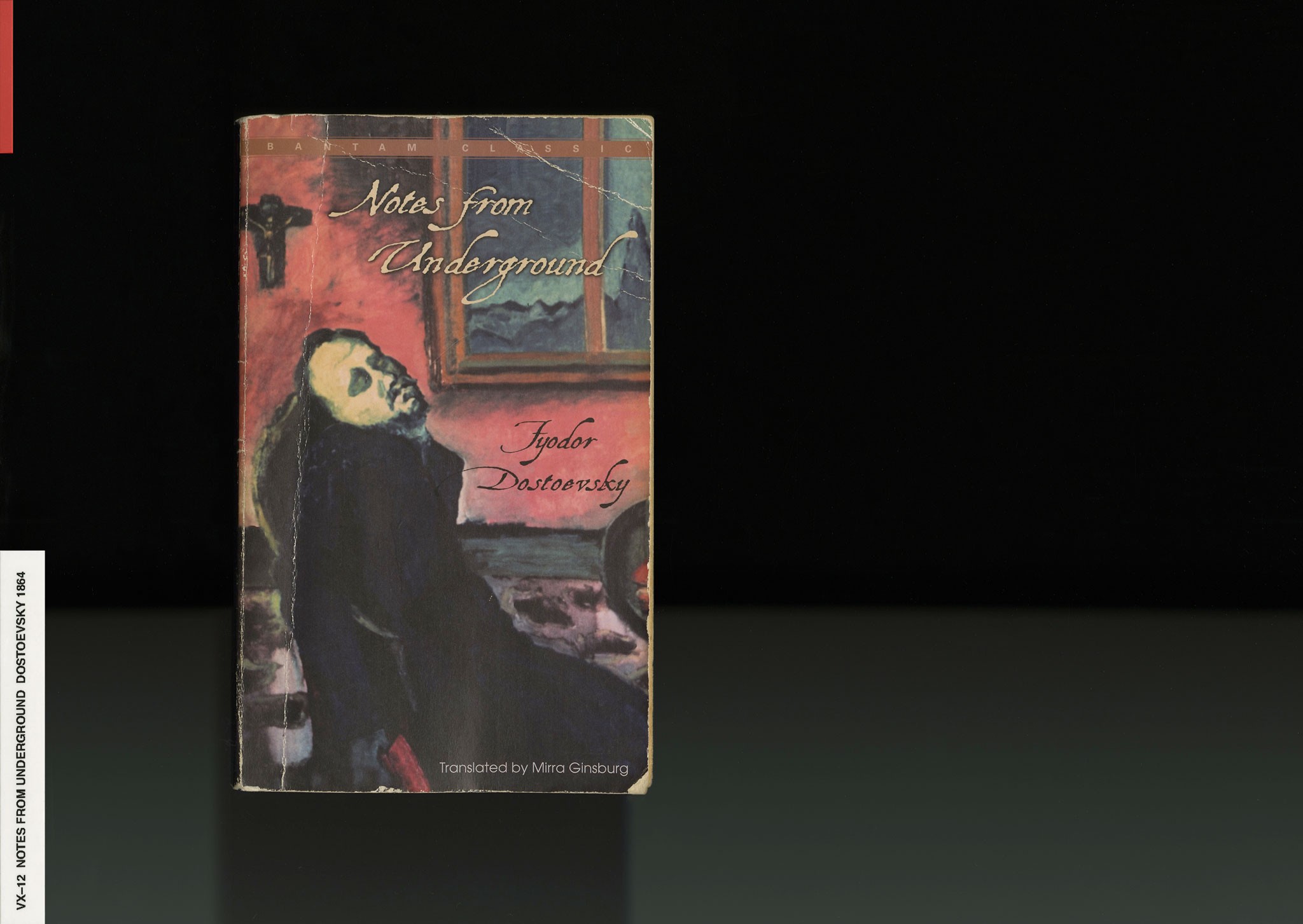
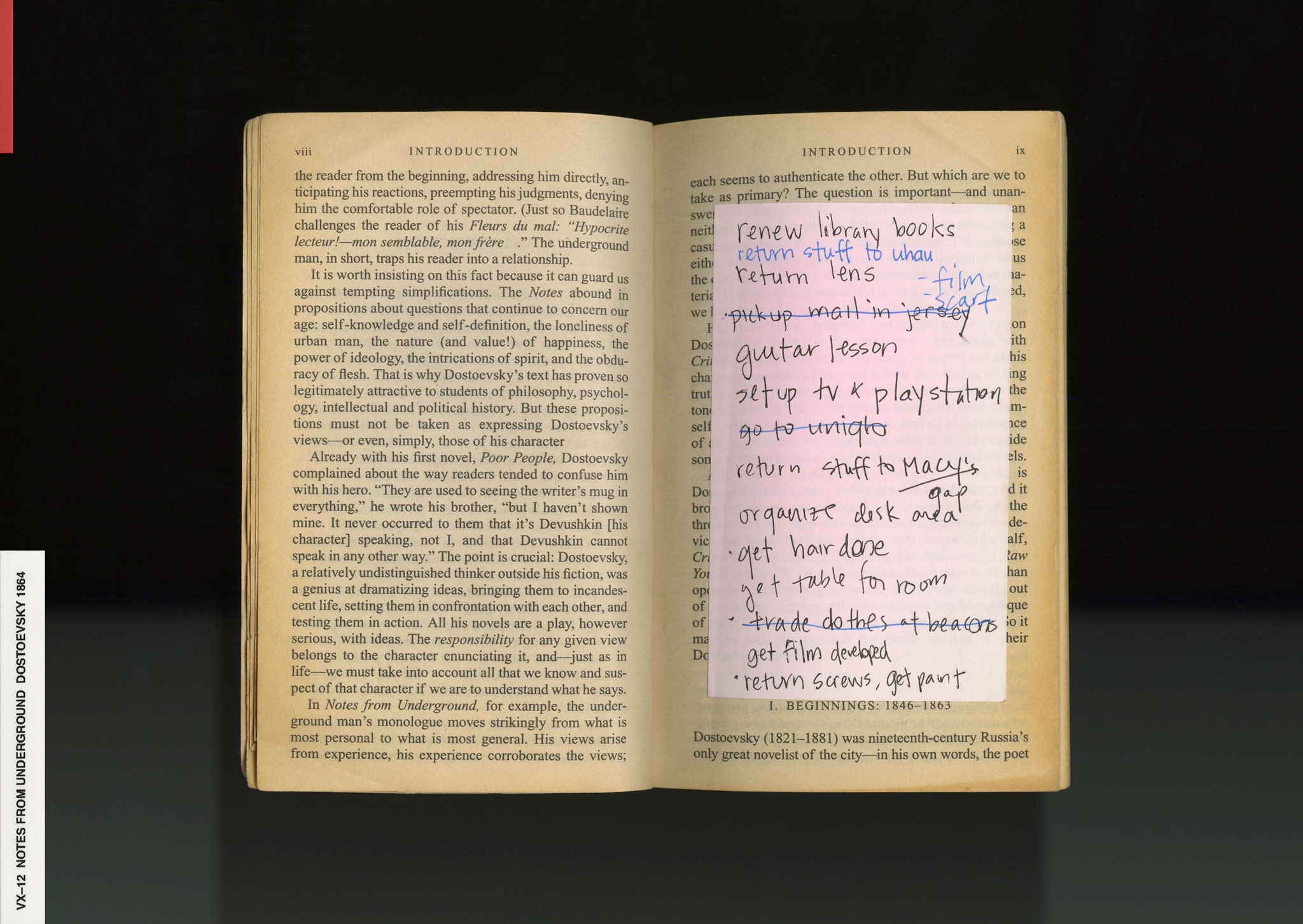
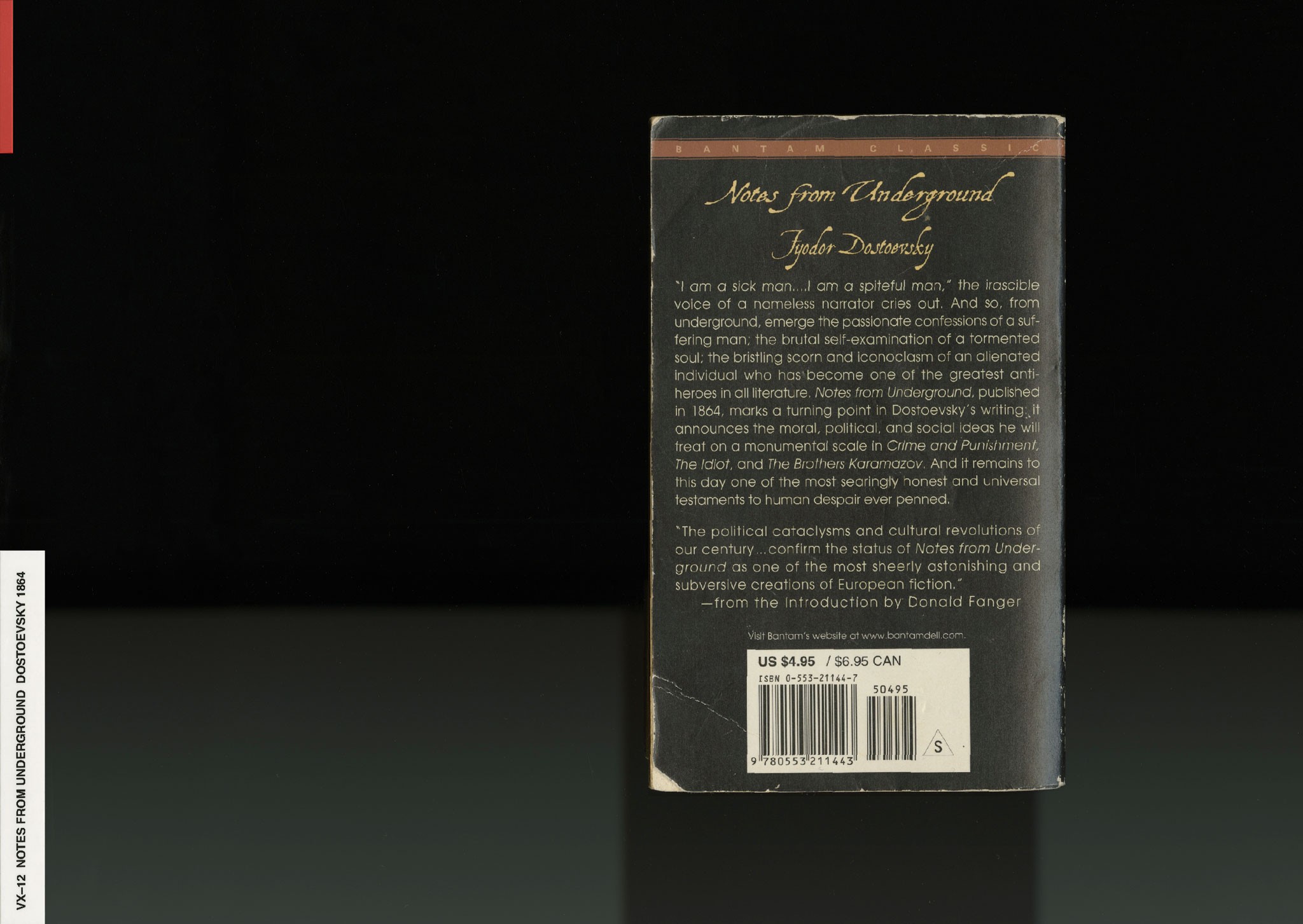
VX
So I'd say, yeah—the majority of the world is living authentically, but no one cares because they're not famous, beautiful, and youthful. My books—I'm not going to lie—are definitely written by some older artists. A good example is . When I went to Tokyo, he invited me to his factory. So I went, and I got to see him work and see what he does, and it's just like, ‘you're not young'.
So no one can tell me that I'm old. No one can tell me that I'm not relevant. No one can tell me that I haven't done my best work yet, or that I've already done my best work. No one can tell me shit, because I've already done more than most people do in their lives. And the impact of what I've done is because I have taken the approach that I've taken and been so thoughtful in my intentions. I just feel like time, age, and authenticity are just not factors when you do the work. I did all the work.
I did all the work for deejaying, and I did all the work for becoming Venus X, and I did all the work for when I tried to go to med school. It helped me understand how to change the world without using chemicals. I wanted to find a cure for AIDS. When I took History of South Africa, I was, it's like, oh okay—the cure for AIDS is not in medicine; it's in social infrastructure.
‘I'm not going to sell you this shit anymore. I don't want to prescribe people more chemicals that are going to make pharmaceutical companies rich. I'd rather figure out what is the economic and social issue here, because there definitely is one, and there's also an issue of, culture, religion, and the way women are viewed in their political system, the kind of rights they have and how men relate to their bodies.’
So, I’d say that my mentors were few. But I definitely had a very close relationship in my music life with , which helped me a lot as a musician who was kind of losing sight of the important things. Just because I was getting pulled in a million different directions and getting all this opportunity, having somebody who was older—who was really committed to storytelling and to the craft, who I'm seeing kind of just slow things down and talk for hours about politics, current events, culture and society—to be able to do that in the midst of also being a really popular sought after DJ, amongst people who are trying to squeeze the lemon while it's still fresh, because the woman's lemon is no longer fresh after a certain age.
Musically, I've also been really close with , which has helped a lot. Just being in a studio and learning, and being around people who have a very long and evolving catalog of music and commitment to music. It's not just Tribe. It's not just, Mariah Carey, it's not just, Solange and Anderson Paak. It's so many different stages of one's creative expression. So yeah, those two have been mainly it, and obviously MIA, from opening up for her world tour to becoming her DJ. Her commitment to politics at a time when it was very compromising to one’s career, she was special and she stood out.
She definitely got a lot of backlash from all the different levels that could come for her. And I think that the music stands the test of time, and it really joins worlds together, and it really introduces all different types of genres, of club music as well as different styles of music, and different languages to somebody like me, who then becomes Venus X of GHE20G0TH1K. So absolutely, I think she was mentoring me before I even became a DJ, because I remember her albums were absolutely formative. Without listening to those things I probably never would have had the confidence to do what I do musically.
NR
As you’ve traveled the world, how has exposure to different movements, sounds, fashion, and people influenced your consumption of printed information?
VX
The main book I can remember reading over and over as a DJ is Program Or Be Programmed10. It's about how the digital worlds that we live in change our anatomy, emotions, physiology, and our brains. It talks about different levels of data compression, or the way we relate to violence and other humans as it affects our levels of empathy. That's the only book I can recall that's been around with me. I've read it in a lot of different countries at different times in my life: Tokyo and Lebanon, but not Paris. There's certain cities that I've been more in that mode or in a mindset to read. Period.
And yeah, that's the only one… It's hard, my memory kind of sucks—they say you don't remember 50% of what you think you remember.
NR
Really?
VX
Yeah. At least, you kind of switch it up every time you recall it. Everyone's full of shit.
NR
What obsessions would be revealed by your library?
VX
Definitely race, economics, spirituality11, and metaphysics. I wish I were lying, but those are real things. Black power, politics, outsider art, and artists that work with light to think about God, , and random shit like that.
My obsession also is people that I know; I collect my friend's works. If you're my friend, I trust you. And if you make a book or a zine, more than likely I have it. Definitely a lot of free zines as artifacts of where punk culture has been at during my youth. I’ve been to a lot of zine fairs—not a ton, but enough—and made some really great buys and been committed to keeping them. What else? That's mainly it. But yeah, it's very alternative12 to what people might see on my Instagram. I'm just—very strange.
My library is pretty fucking great. Can't complain. It's not as big as I'd want it to be, because I haven't been in one place long enough, and I've gotten rid of some books, but it's really good. I could send you some pictures.
NR
Yeah, that would be cool. This is the last one, so let’s go big picture:
You are prolific for creating impossible situations through music. Through a progressive, global, multicultural sound, GHE20G0TH1K brings people together whose crafts and communities were previously segregated. Now the movement is world-renowned, and your party-goers have worked together to redefine New York City. Looking to the future, what is your vision for a new impossible situation you wish to will into existence?
VX
I'm exploring new mediums—the impossible part might be finding the beginning again and then going through a whole new cycle that is as amazing as the last 10 years. I'm definitely starting to dabble in it. When you put in all the time early on, and then you get the results that we got as a community, you kind of lose the routines, the simplicity and wholesomeness… even though it was never really wholesome. But—you know what I mean—the local energy, not the authenticity, because we're all still really authentic and insane. It’s more so you lose that intimacy.
Now I have to find that intimacy again with making music, products, merchandise, clothing, and lifestyle products that are part of—even for a small community—the way that we move through the world. I want to wear what I want to wear, and I want to buy what I want to buy, and I want to create what I want to create. At the end of the day, there's so much product in the world and we don't know where it comes from or who it makes wealthy. We should produce more ourselves, at any level, whether it's a party, music, clothes, food or whatever.
I think about my medium a lot wider now, and about how I can feel that feeling without ever really getting comfortable with a level of success or money. I would say a lot of people know me—I'm not particularly rich, but I'm definitely not the broke DJ I was when I started. No, I have a Balenciaga bag now, and I get free stuff from designers, and I do really special parties and whatever and make money. I don't make a lot of money, but I make good money. I used to make no money at all. So how do you find it in something new, and how do you also manage the boundaries of what you refer to as success? I'm not chasing the material as much as I'm chasing that relevance and that feeling. Not the feeling of being popular, but of actually being impactful and of having a community that really gets what I'm doing, whether it's in New York or globally.
Yeah, I want to be popular and famous. Sure. Who doesn't? But at the cost of what? That's been the big lesson of the last few years. It's like, ‘so the more money I want to make the less wild my DJ set can be? Mmmm, ok’. So, if that's the way it's going to be for that [money], then for something else it has to be pure. For me, that's in making music and in Planet X, because I can carry whatever I want and no one could tell me shit... I don't have investors. It's not like I'm a designer on a fashion calendar or even have a physical store right now. I don't, and it gives me a lot of freedom.
But really that's about, like, those kinks and those stories that I can tell. And then finding products that I want. Finding a toy that I want more of the world to have—one that’s handmade and made by a woman. You know what I mean?
Being able to develop new versions of that DJ side, inside of other mediums, even with music production—it's like I'm a baby in that, even though I've made soundtracks, and I've made ideas and I've made songs. I've never tried to be an artist or producer that is like, okay here's a pack of instrumentals and anybody could jump on it, and it would be potentially be a hit. That's a new level of accuracy that I want to try and get to. But obviously I want to have the same quality of GHE20G0TH1K in that.
So, it's different from just making a product. It's different from making a t-shirt that just is like, oh, ‘we're going to make thousands of T-shirts’. It's like, no, you could make some merch—but if we're going to make clothes, we should probably make great clothes. If we're going to make music, we should probably make great music. And everybody wants to make great music, but some people are actually able to cook. So it's getting back in that mentality and then doing something that no one else can do, which only I can do. And that's kind of how the deejaying went. It was like, no one else was doing that type of thing, and no one else was playing that type of music. And even if they were, it wasn't at the level of intensity that I was or that my collaborators were, so it became ours.
Now we have to collectively, but also personally, find a way to take that energy into other mediums because it is fluid, you know?
There's still a lack of representation all around—whether you look at fashion or music, production, deejaying, engineering, retail stores, owners, and product designers. There's not a lot of women and certainly not women of color. So, yeah, we are trying to expand the mediums, but not change the message.
The future is also just really simply to put out an album, a book, an online store, a regular radio show. Yeah.
And that's it on that! Album coming very soon.
NR
You mentioned you are writing a book about your life...
VX
...I am, but I don't know when it'll come out. It'll probably come out in a couple of years.
I'm really excited. There will probably be a GHE20G0TH1K book before there's a Venus X book. I’ve written notes over the years that are like diary entries or songs. I want to help people understand what I understand about the world, because it's more than just music, it's more than just fashion. It's really about seeing it all for what it really is and not going insane. Because that's what happens to most people—either that or they numb out.
I definitely want to give people the cheat codes, you know?
